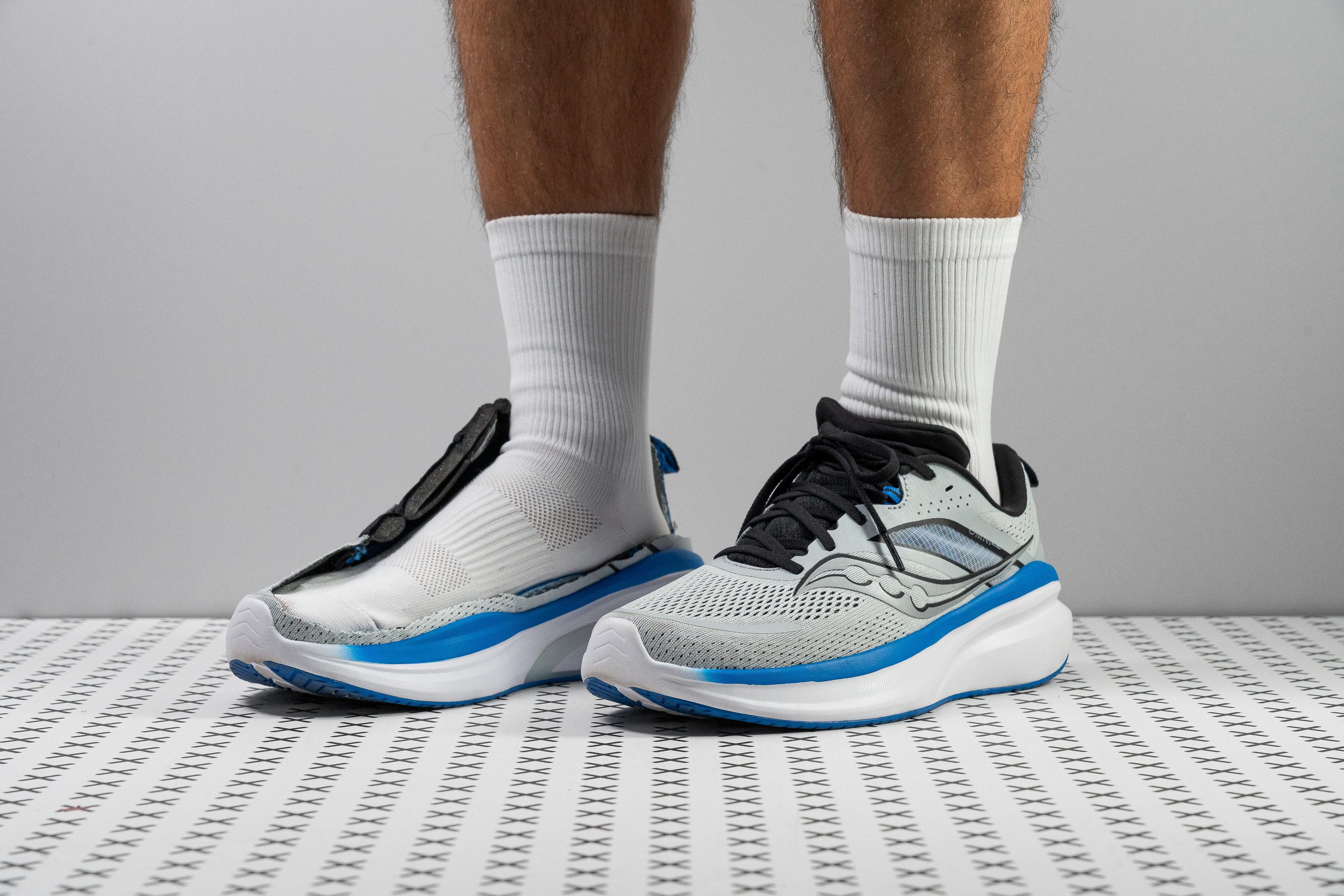Our verdict
Pros
- Excellent choice for flat feet
- Outstanding stability
- Durable XT900 outsole
- Versatile enough to double as a casual shoe
- Good breathability
- Flexible construction
- Surprisingly good energy return
- Fair pricing
- Suitable for all footstrikes
Cons
- Limited shock absorption in the heel
- Upper durability may be an issue
- Heavier than several competitors
Audience verdict
Comparison
The most similar running shoes compared
+ + Add a shoe | |||||
|---|---|---|---|---|---|
| Audience score | 77 Decent! | 83 Good! | 87 Great! | 87 Great! | |
| Price | £140 | £160 | £110 | £140 | |
| Pace | Daily running | Daily running | Daily running | Daily running | |
| Shock absorption | Moderate | Low | Moderate | Moderate | |
| Energy return | Moderate | Low | High | Low | |
| Traction | Moderate | Moderate | - | High | |
| Arch support | Stability | Stability | Stability | Stability | |
| Weight lab Weight brand | 10.1 oz / 285g 10.1 oz / 286g | 11.6 oz / 329g 11.3 oz / 320g | 10.3 oz / 293g 10.5 oz / 297g | 9.6 oz / 272g 9.5 oz / 269g | |
| Drop lab Drop brand | 7.3 mm 8.0 mm | 7.9 mm 10.0 mm | 9.8 mm 10.0 mm | 5.0 mm 5.0 mm | |
| Strike pattern | Mid/forefoot | Mid/forefoot | HeelMid/forefoot | Mid/forefoot | |
| Size | True to size | True to size | True to size | Slightly small | |
| Midsole softness | Balanced | Balanced | Firm | Soft | |
| Difference in midsole softness in cold | Small | Normal | Small | Small | |
| Toebox durability | Bad | Good | Decent | Decent | |
| Heel padding durability | Good | Good | Good | Decent | |
| Outsole durability | Good | Good | Bad | Good | |
| Breathability | Moderate | Moderate | Warm | Moderate | |
| Width / fit | Medium | Narrow | Medium | Wide | |
| Toebox width | Medium | Medium | Wide | Wide | |
| Stiffness | Flexible | Moderate | Stiff | Flexible | |
| Torsional rigidity | Moderate | Stiff | Moderate | Moderate | |
| Heel counter stiffness | Flexible | Moderate | Moderate | Moderate | |
| Heel lab Heel brand | 33.0 mm 35.0 mm | 33.2 mm 31.0 mm | 32.9 mm 31.0 mm | 30.2 mm 28.0 mm | |
| Forefoot lab Forefoot brand | 25.7 mm 27.0 mm | 25.3 mm 21.0 mm | 23.1 mm 21.0 mm | 25.2 mm 23.0 mm | |
| Widths available | NormalWide | Normal | Normal | NormalWide | |
| Orthotic friendly | ✓ | ✓ | ✓ | ✓ | |
| Season | All seasons | All seasons | All seasons | All seasons | |
| Removable insole | ✓ | ✓ | ✓ | ✓ | |
| Ranking | #354 Bottom 7% | #261 Bottom 31% | #177 Top 47% | #156 Top 41% | |
| Popularity | #285 Bottom 25% | #144 Top 38% | #354 Bottom 7% | #235 Bottom 38% |
Who should buy
We believe the Saucony Omni 22 is a solid choice for:
- Runners who need more stability than regular daily trainers and want a reliable shoe with a durable outsole.
- Those who dislike modern maximalist designs and prefer an everyday option with an average stack height.
- Pronators seeking stability without excessive stiffness, as this model works well for all footstrikes.
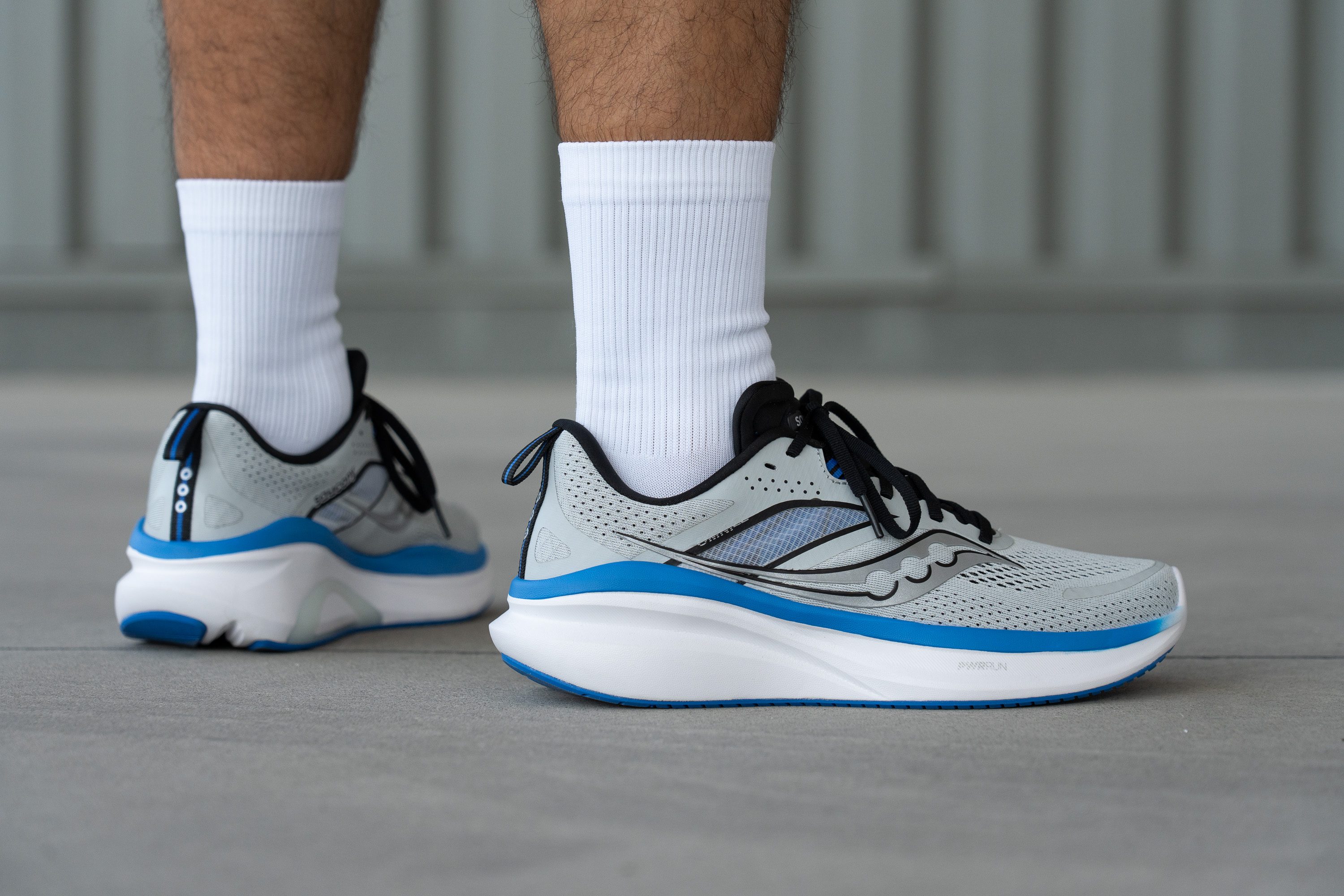
Who should NOT buy
We think the Saucony Omni 22 isn’t the best choice for runners seeking a plush ride. In our lab tests, we found its firmer PWRRUN foam delivers stability but lacks the cloud-like cushioning found in options such as the ASICS Gel Kayano 31 or the New Balance Fresh Foam X Vongo v6. From our perspective, these alternatives offer solid stability but with softer midsoles.
Additionally, we believe the Omni 22 falls short for runners tackling long runs. On our runs, the shoe’s limited shock absorption felt low, especially for heel strikers. For those regularly logging longer efforts, we suggest looking at the Saucony Hurricane 24, which provides enhanced protection underfoot.
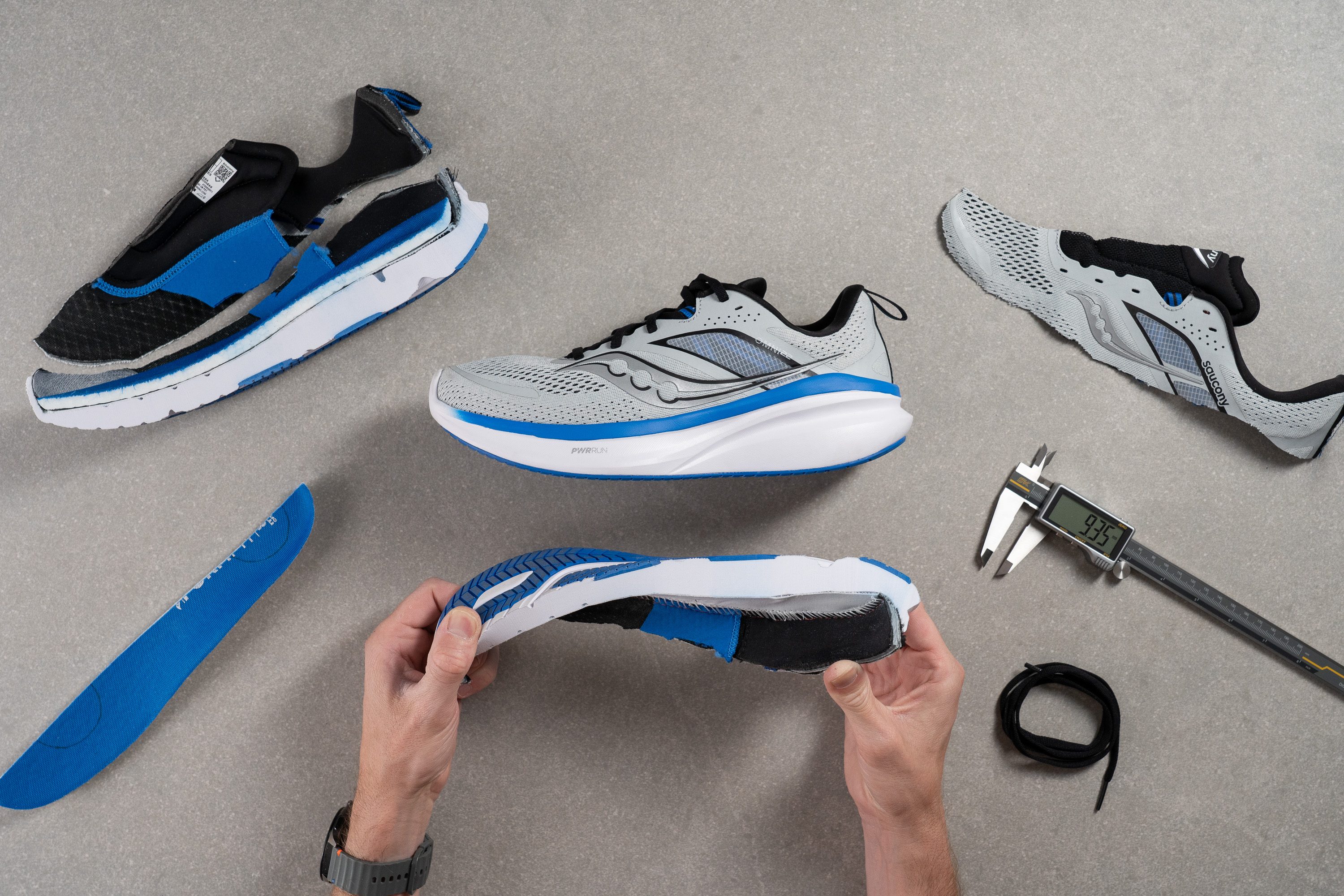
Cushioning
Shock absorption
The Saucony Omni 22 goes a bit against the current trend of running shoes, as it doesn’t deliver much heel shock absorption.
With only 116 SA in the rear and 104 SA up front, it falls below average, making it less suitable for long runs. However, for distances up to 15K, it performs well unless you are on the heavier side.
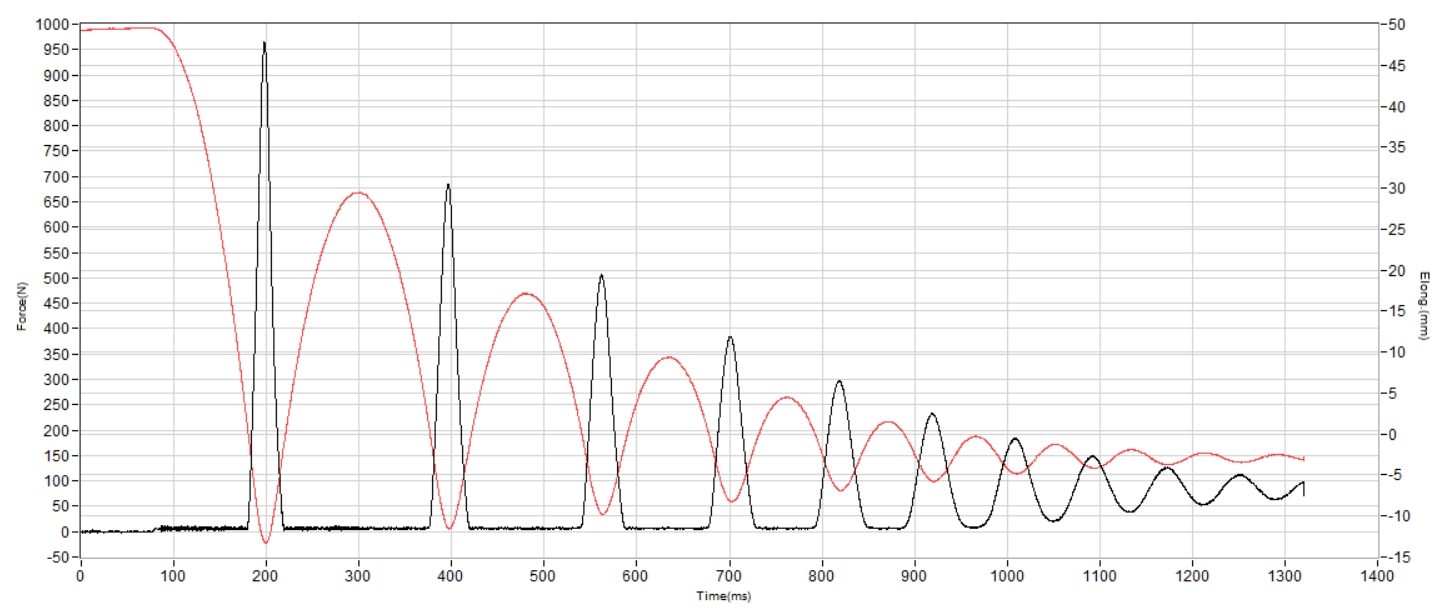
| Omni 22 | 116 SA |
| Average | 130 SA |
Energy return
We discovered that the Omni 22 delivers solid energy return, showing an impressive 65.3% in the forefoot. This is quite remarkable for a stability shoe, which usually focuses on support, making it a nice performance-boosting bonus.
But why this result if the Omni still relies on a basic EVA foam like PWRRUN? The secret is in the insole, crafted from the TPU-based PWRRUN+ foam. It’s a common feature in many Saucony models, and we believe more brands should follow this approach of using a more energetic insole instead of a dull one.
| Omni 22 | 59.6% |
| Average | 58.6% |
Heel stack
When we measured the heel stack height of the Omni 22, we also confirmed its modest shock absorption. With only 33.0 mm of foam, it would have been plenty 5 years ago, but today it sits below the lab average.
However, for those who dislike maximalist, ultra-high running shoes, this could be the right match.
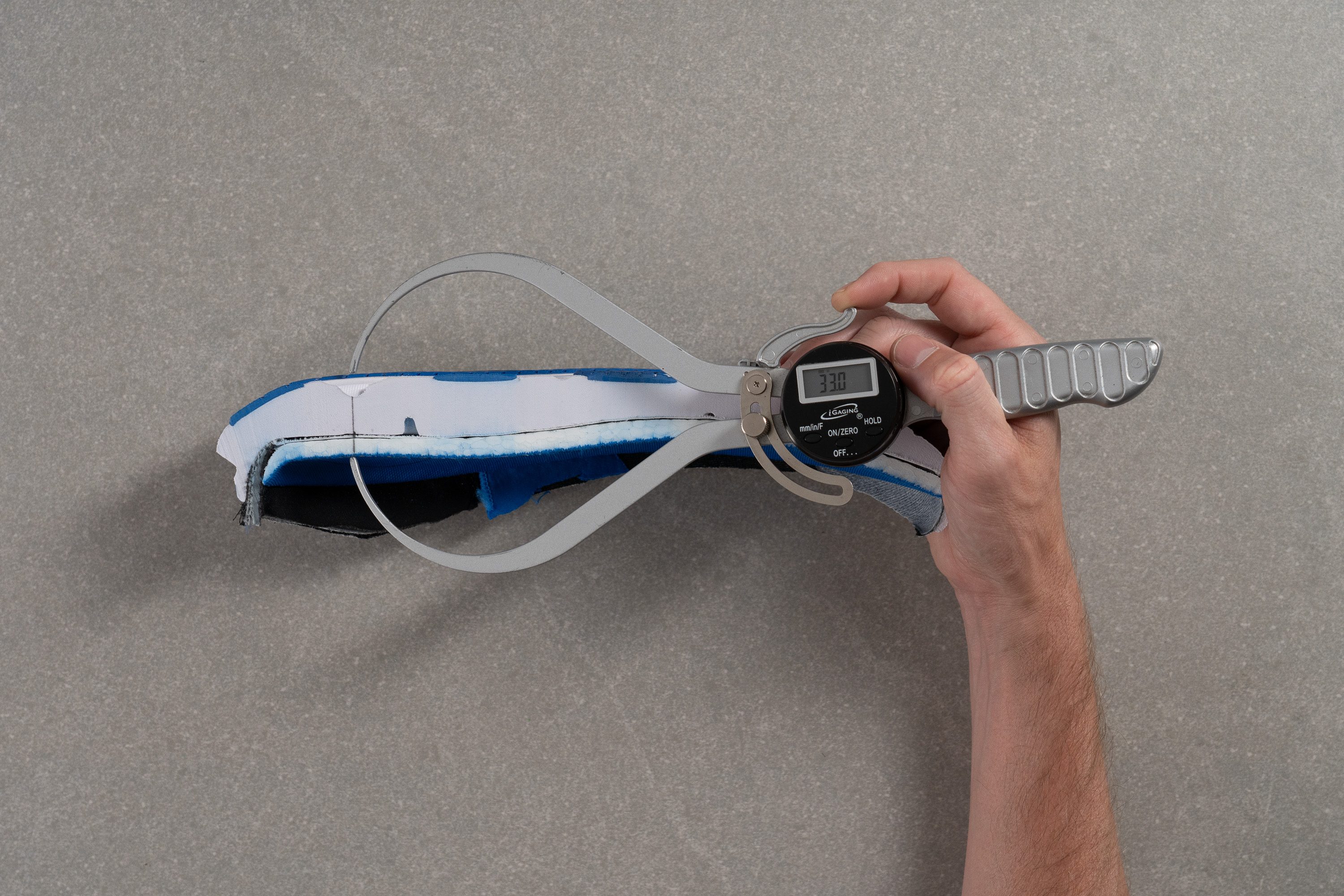
| Omni 22 | 33.0 mm |
| Average | 34.8 mm |
Forefoot stack
The forefoot also sits close to the average and feels very Omni, in the sense that this is one of those dependable shoes designed not to stand out but to cover all the essentials. And with 25.7 mm of stack height, it seems like an ideal measurement to appeal to as many runners as possible.
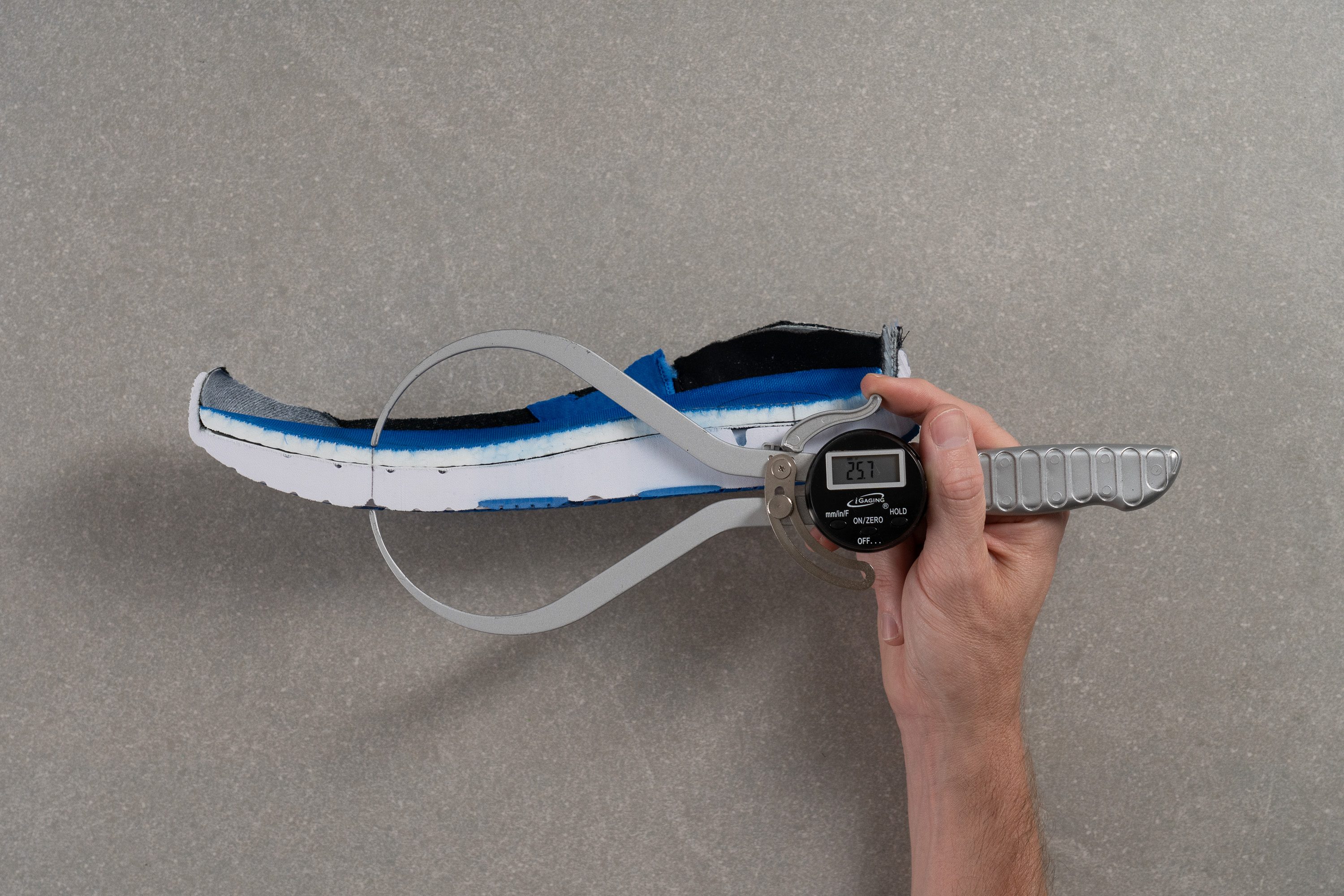
| Omni 22 | 25.7 mm |
| Average | 26.2 mm |
Drop
The official drop stated by Saucony is 8 mm, and we measured 7.3 mm. The difference is ultra-clear and minor—if you doubt it, just grab a measuring tape and see how small 0.7 mm really is.
With this drop, the Omni aims to attract the broadest range of runners, since 6-8 mm is widely seen as the sweet spot that appeals to the majority.
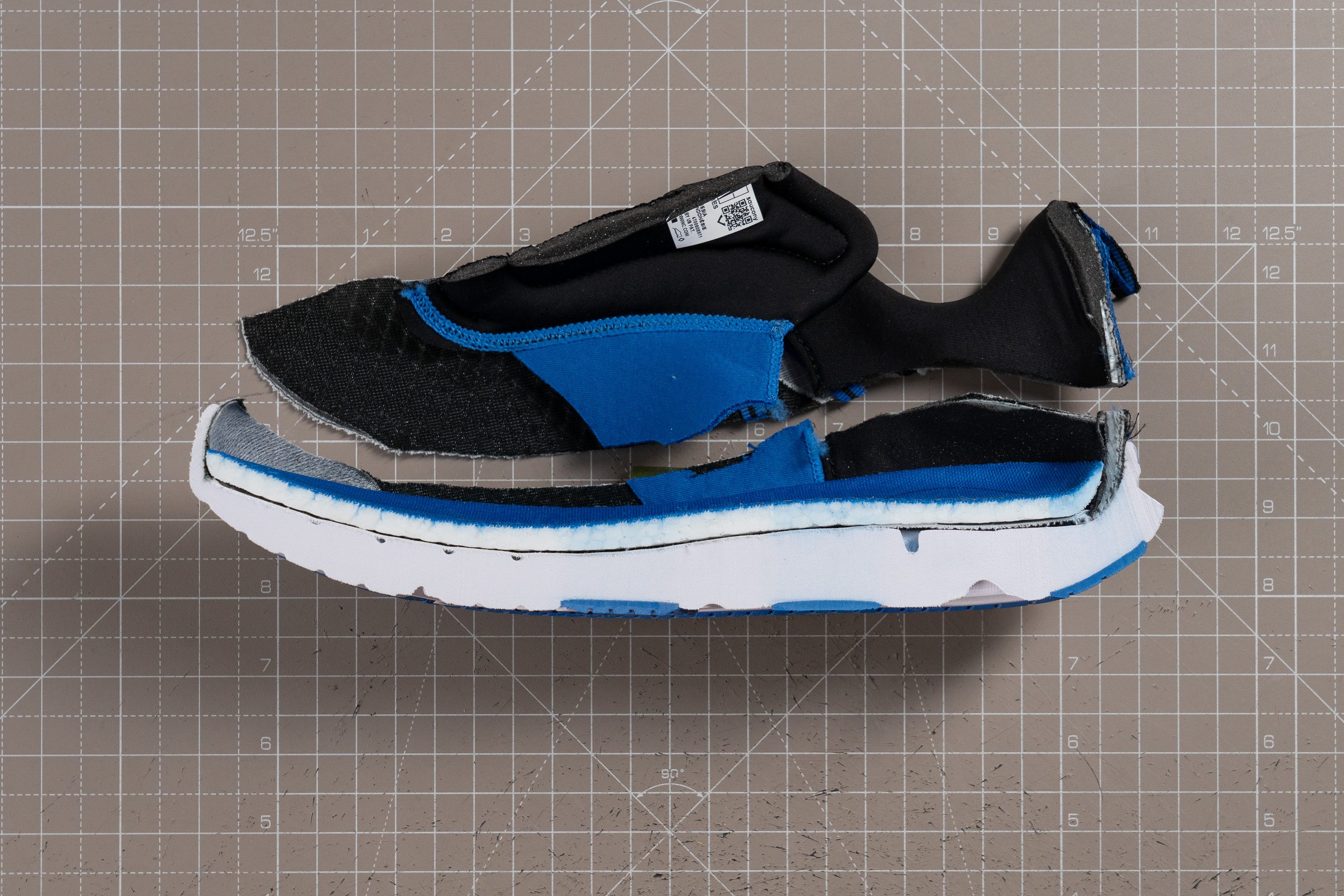
| Omni 22 | 7.3 mm |
| Average | 8.6 mm |
Midsole softness
Another example where the Omni 22 shows its straightforward, classic-style design is in the midsole. We tested the EVA-based PWRRUN compound and measured 24.6 HA, which feels firm rather than soft, delivering a stable ride.
For us, this is not an issue at all. The market is full of plush midsoles, and in a stability shoe meant to also welcome beginners, it makes sense to rely on firmer foam that doesn’t collapse laterally as much.
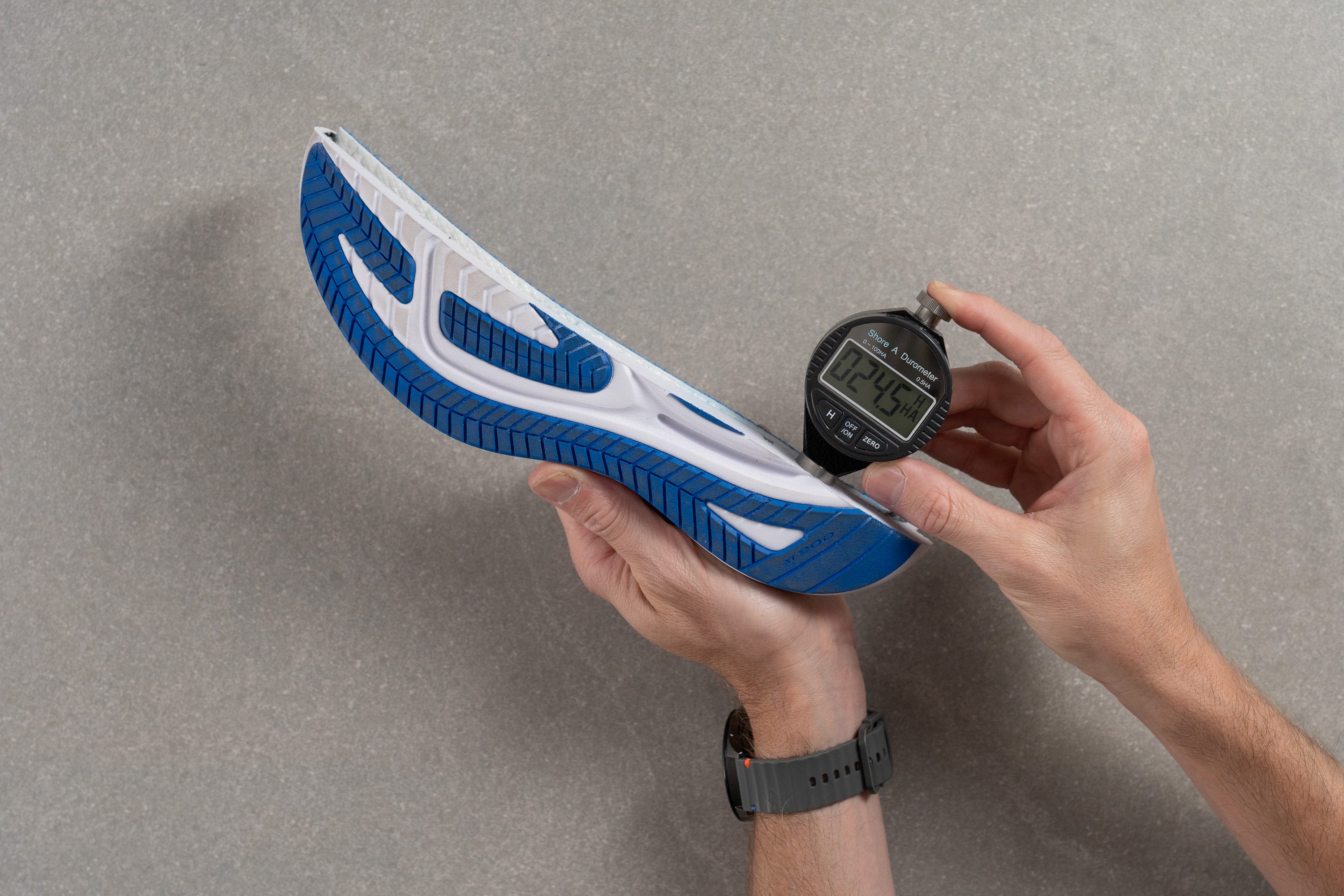
| Omni 22 | 24.6 HA |
| Average | 20.4 HA |
Rocker
The Saucony Omni 22 features a subtle rocker, fitting its role as a stability shoe. Instead of pushing runners forward aggressively, it prioritizes steady ground contact and medial control.
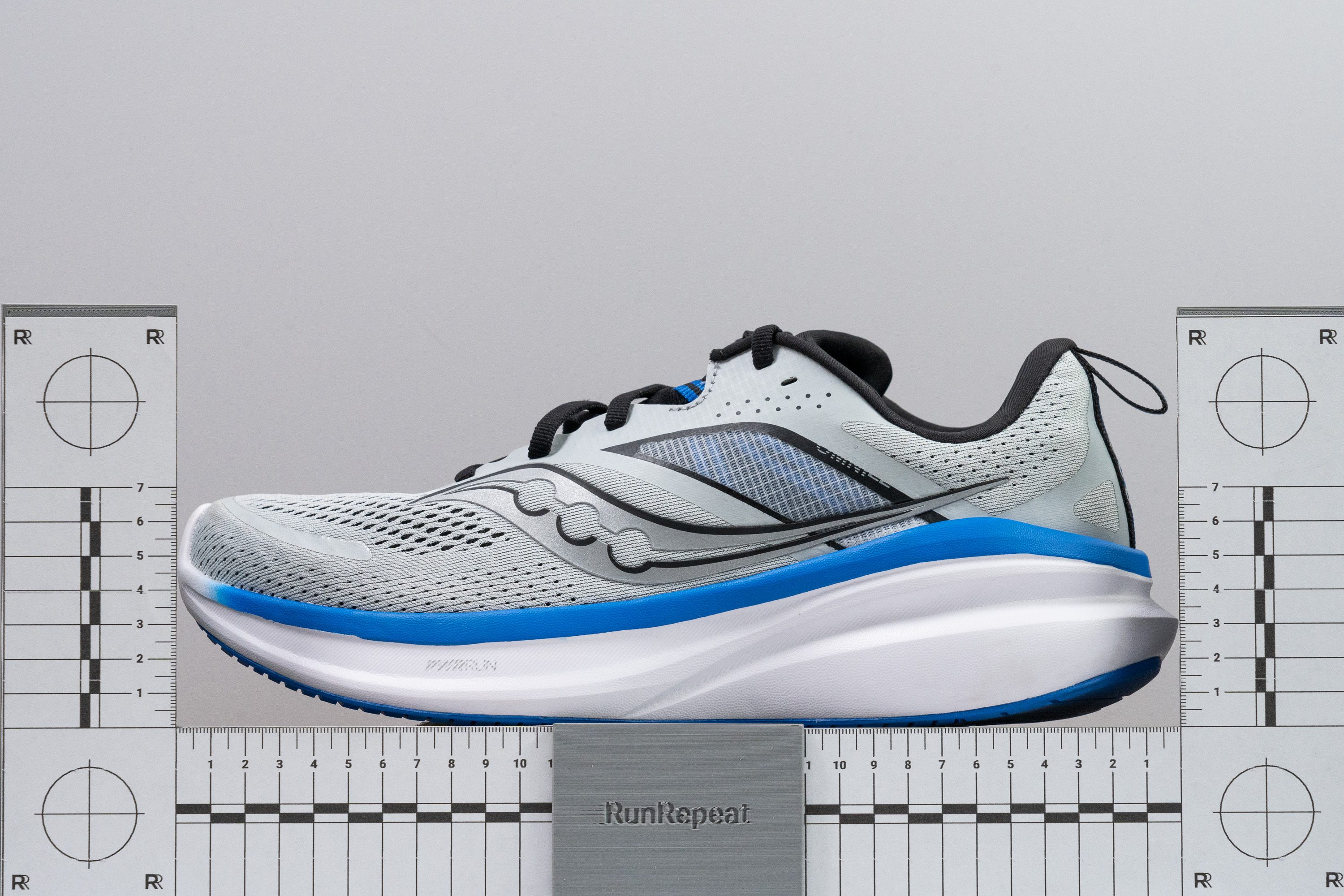
Size and fit
Size
Saucony Omni 22 fits true to size (17 votes).
Width / Fit
We tested the widest area of the shoe and measured 95.7 mm. This is yet another average value designed to fit most runners without feeling ultra-wide or overly snug, which matches the Omni’s reliable design.
The Omni 22 also comes in two width options—standard and wide—offering a customizable fit, though availability may differ by region.
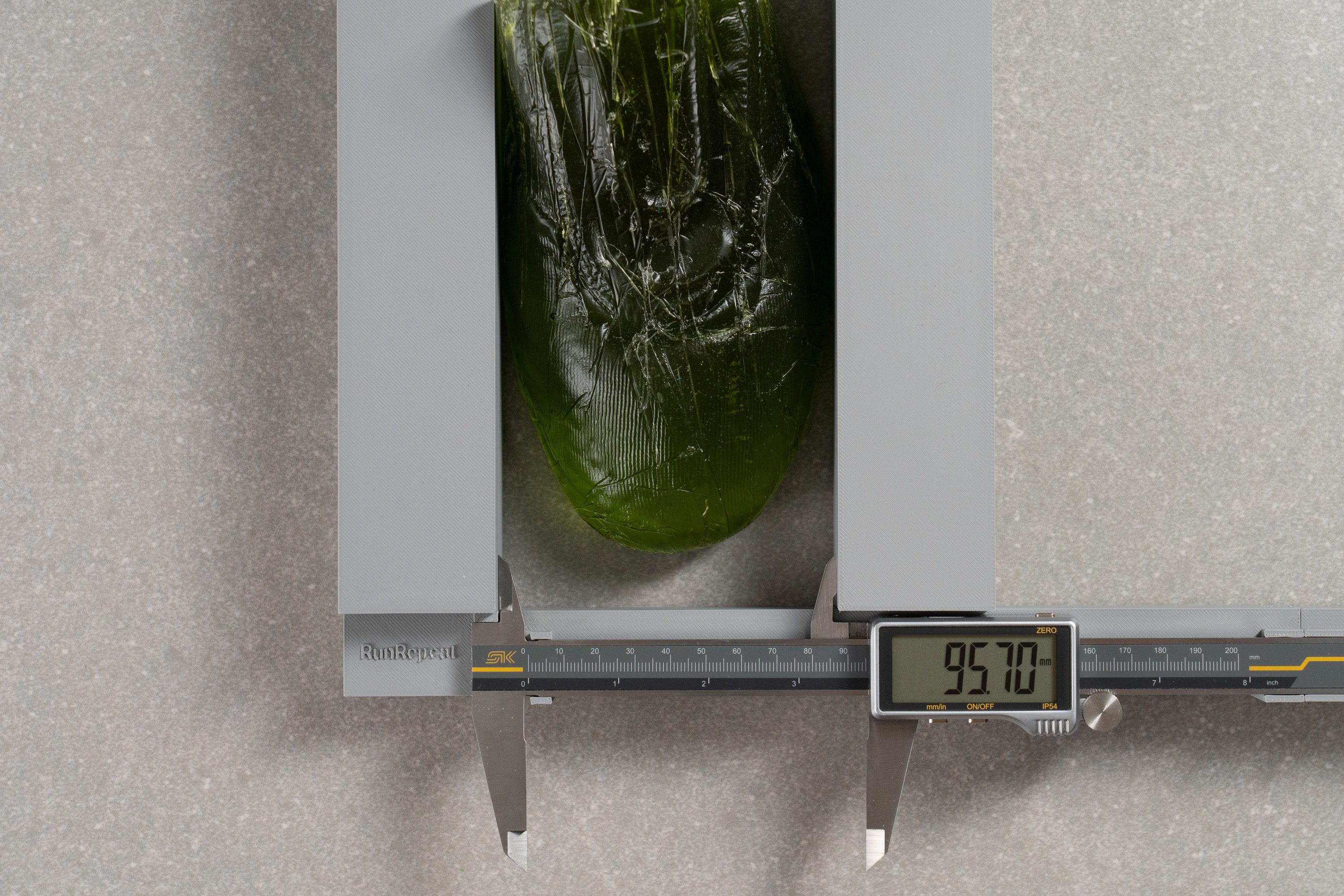
| Omni 22 | 95.7 mm |
| Average | 95.1 mm |
Toebox width
The toebox leans slightly narrow, yet at 72.8 mm we still consider it an average fit. And remember that often, differences of just 1 or 2 mm are balanced out by a soft or highly-flexible upper, and vice versa.
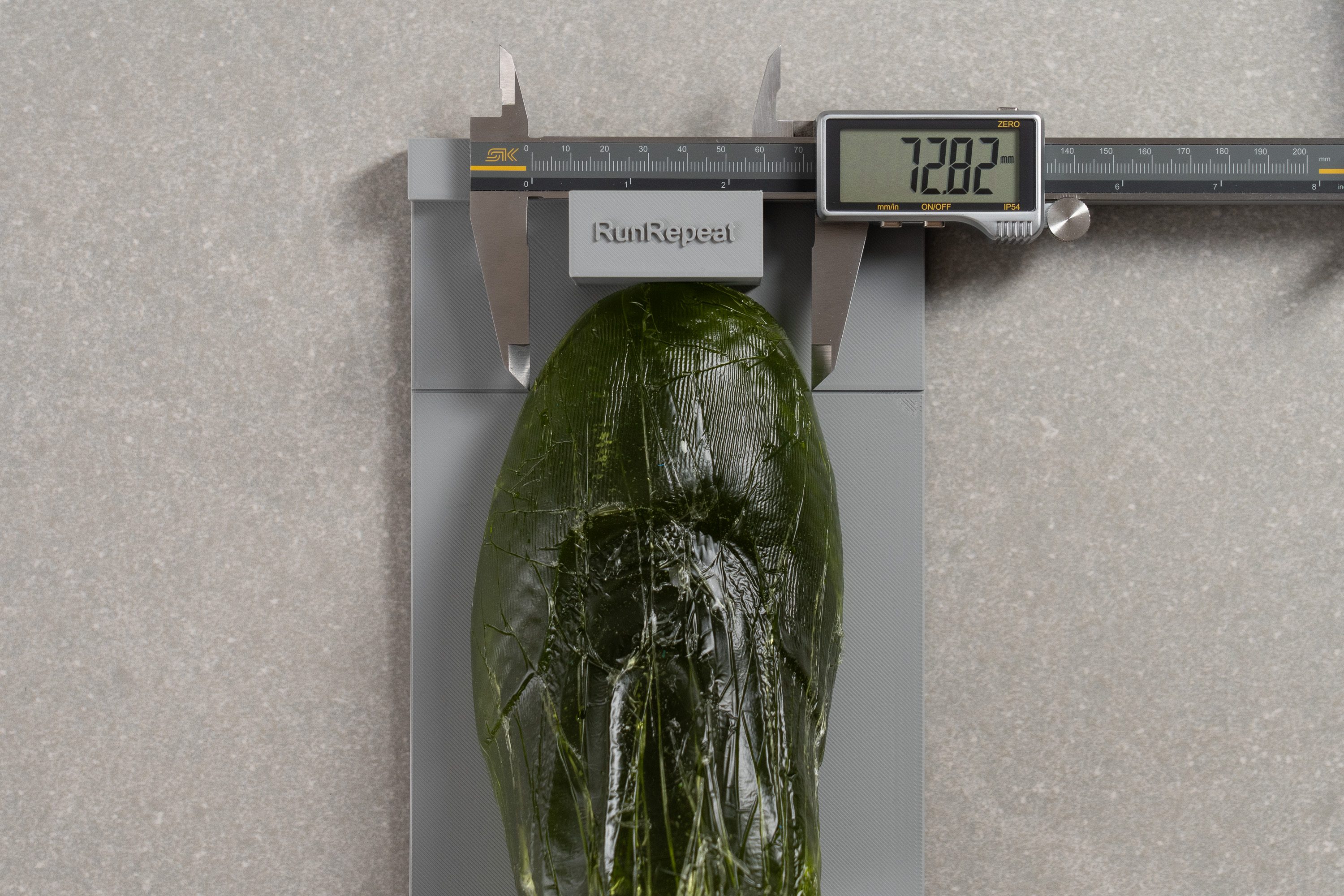
| Omni 22 | 72.8 mm |
| Average | 73.3 mm |
Toebox height
The toebox height provides ample clearance, making it comfortable for daily runs or even wearing the shoe as a casual sneaker.
Our 29.4 mm measurement, combined with our testing experience, fully supports this observation.
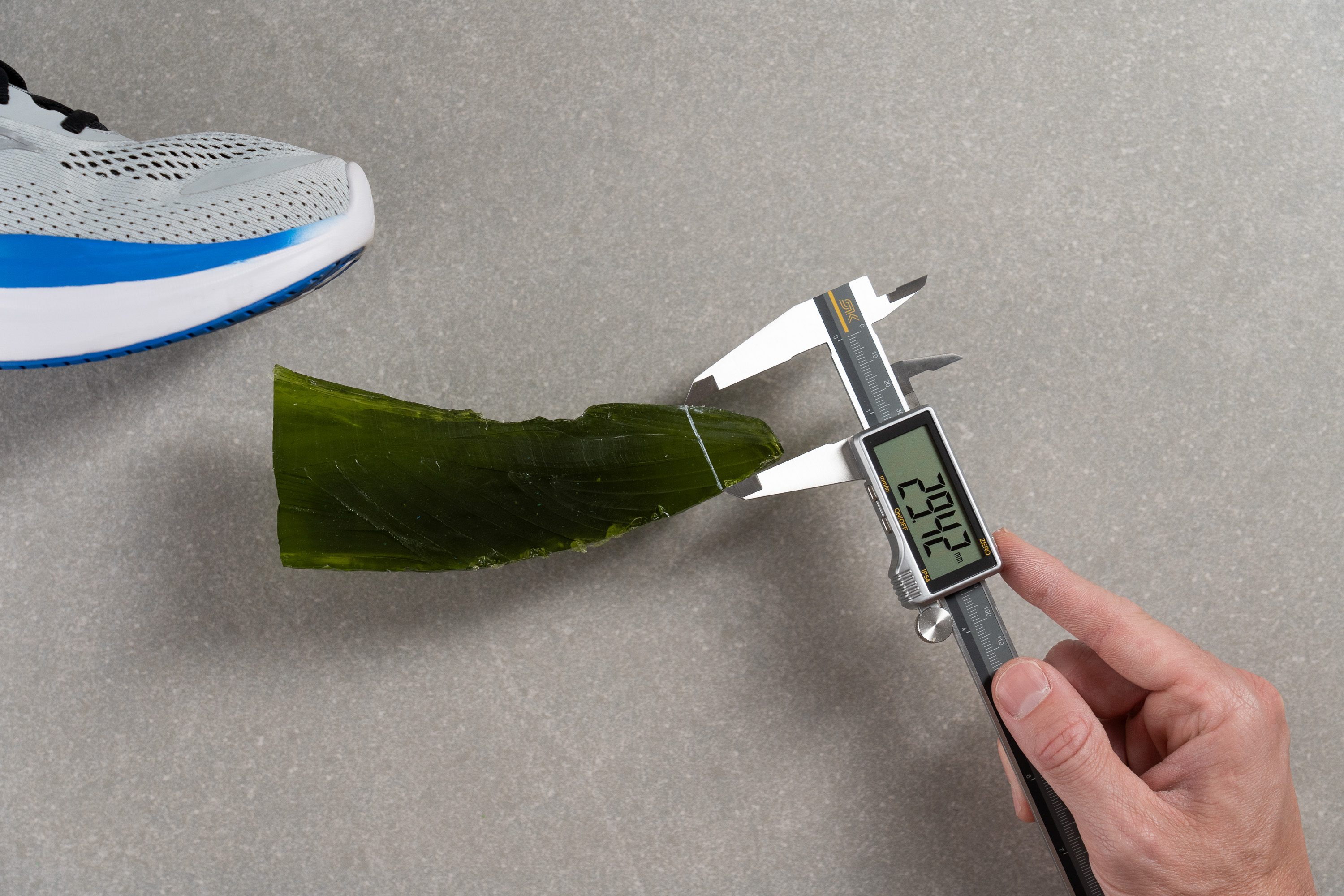
| Omni 22 | 29.4 mm |
| Average | 27.0 mm |
Traction / Grip
Traction test
We tested the Omni 22 using the SATRA TM144 grip method and found a 0.44 coefficient of friction, which is a solid result.
| Omni 22 | 0.44 |
| Average | 0.49 |
Outsole design
The outsole of the Saucony Omni 22 uses XT900 rubber. Large panels extend across most of the midsole. Several cutouts expose the PWRRUN foam, positioned to reduce weight and improve flexibility. We also found that the areas prone to heavy wear from pronation are thoroughly reinforced.
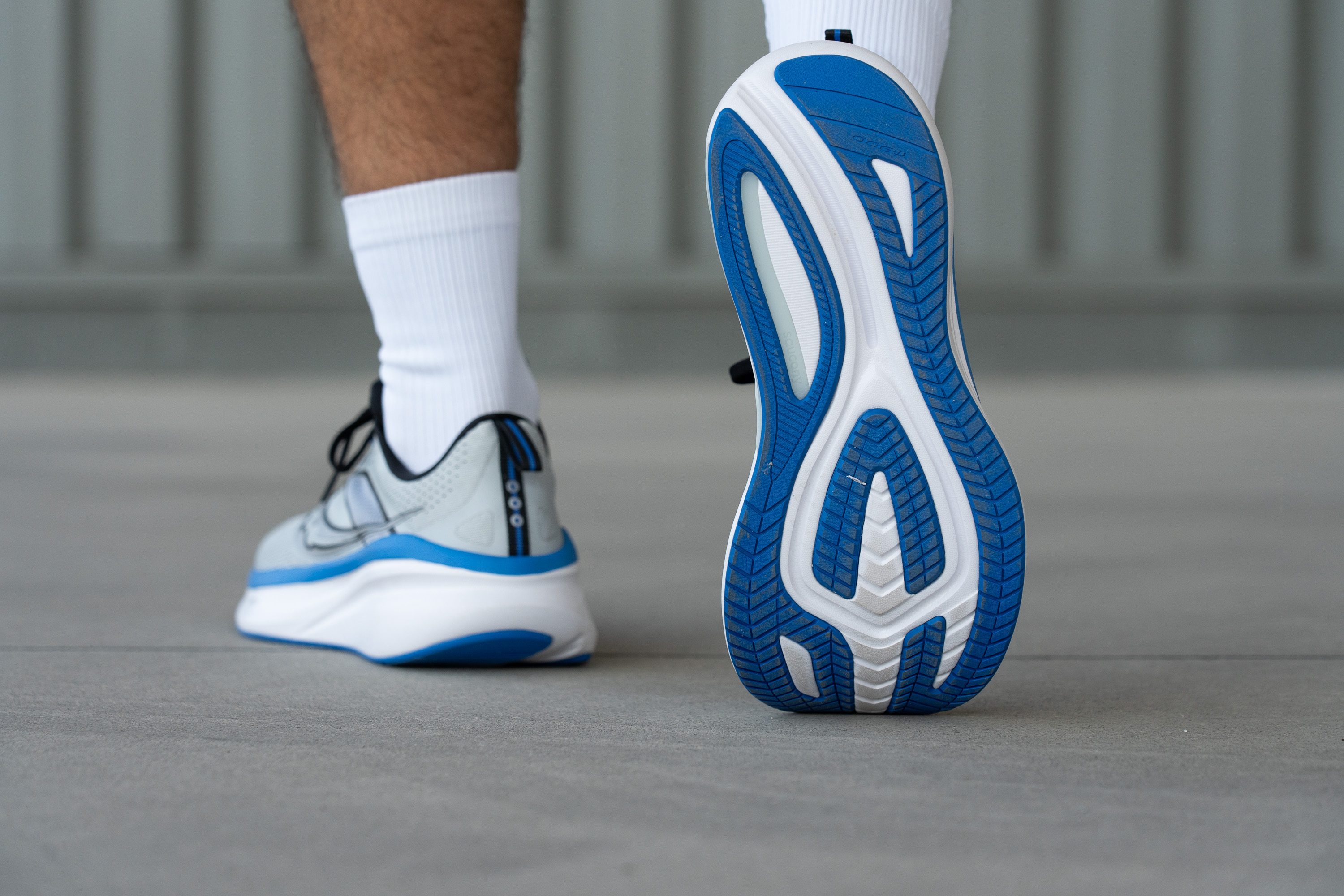
Flexibility / Stiffness
The outsole design, combined with the non-maximalist stack height, plays a key role in keeping this shoe flexible and comfortable for daily wear, allowing a natural bend. In our 30-degree test, it measured just 9.7N.
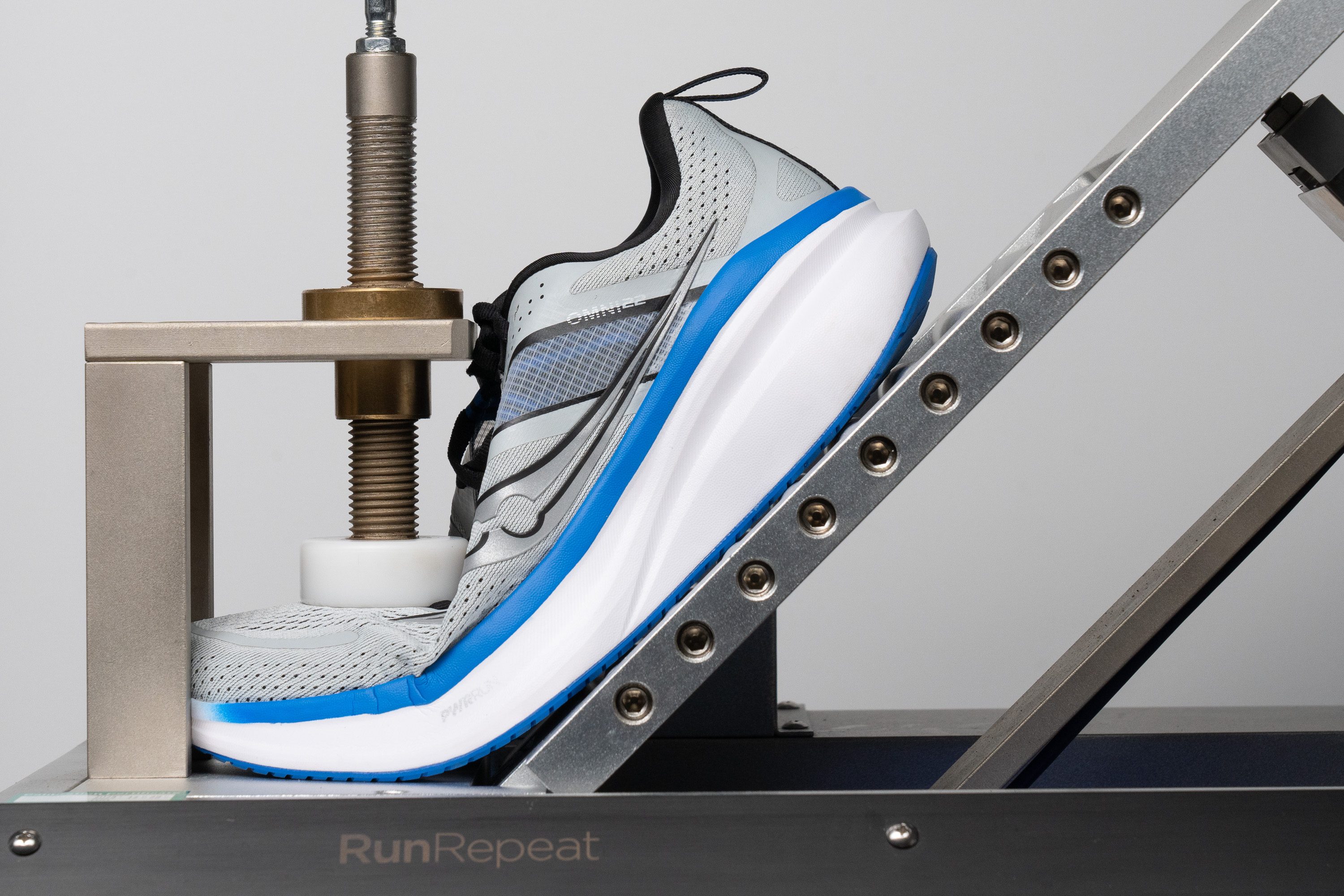
| Omni 22 | 9.7N |
| Average | 15.3N |
Weight
The Omni 22 comes in at 10.05 oz or 285g.
With some max-stack daily trainers now dropping under 9 oz or 255g, the Omni’s weight feels acceptable yet not a standout characteristic.
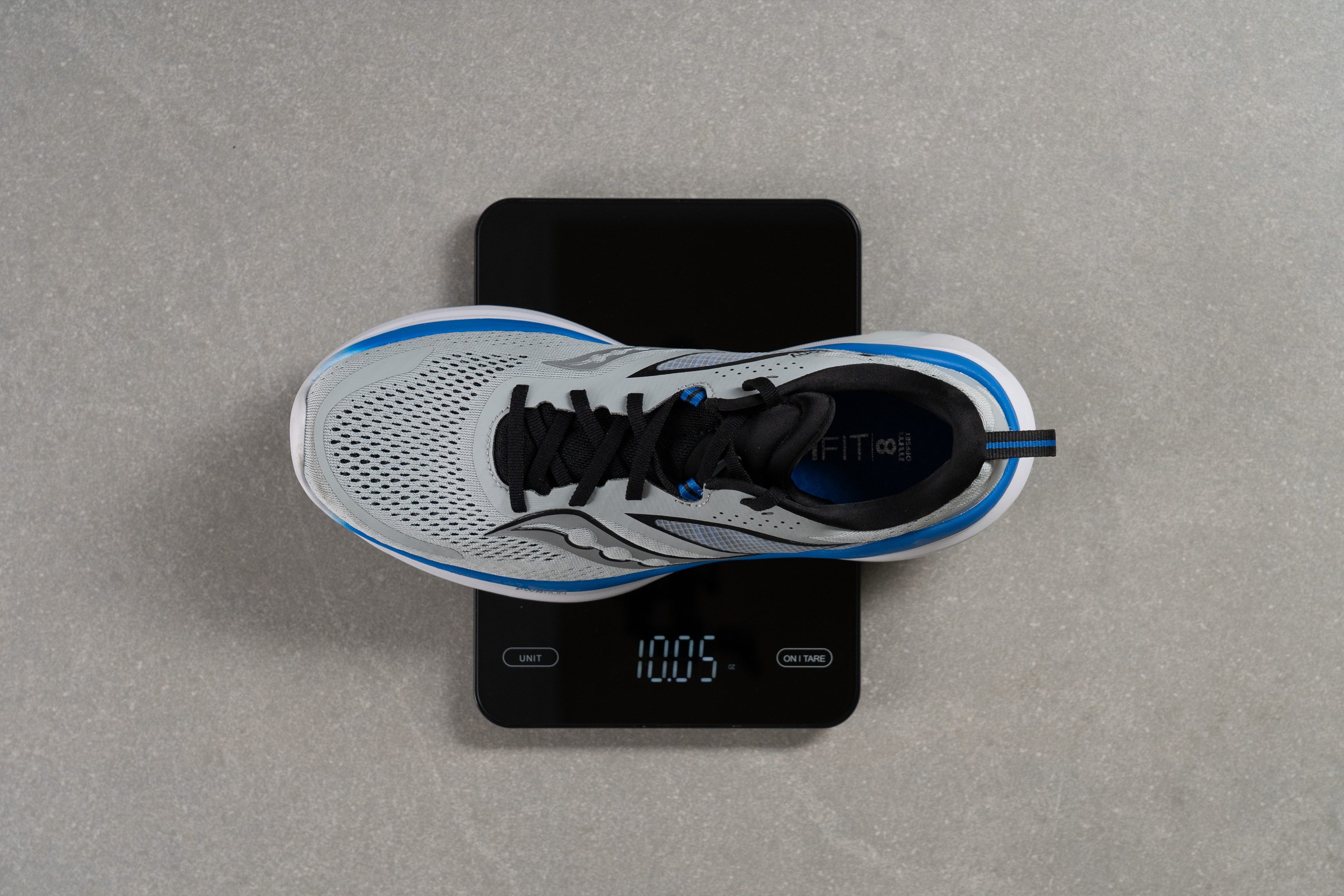
| Omni 22 | 10.1 oz (285g) |
| Average | 9.3 oz (264g) |
Breathability
The upper of the Saucony Omni 22 is filled with ventilation holes across the forefoot, giving the impression that airflow would be exceptional right from the start. In our view, this design choice immediately suggests a focus on breathability.
After running our smoke test, we recorded a 4 out of 5 score. This is an excellent result that, in some ways, is even better than 5/5, since it combines strong ventilation with a bit of protection during colder months, making it versatile throughout the year.
For a shoe positioned as a heavy-duty trainer, the airy construction came as a surprise. It shows that Saucony willingly sacrificed a bit of durability in order to prioritise airflow and overall comfort.
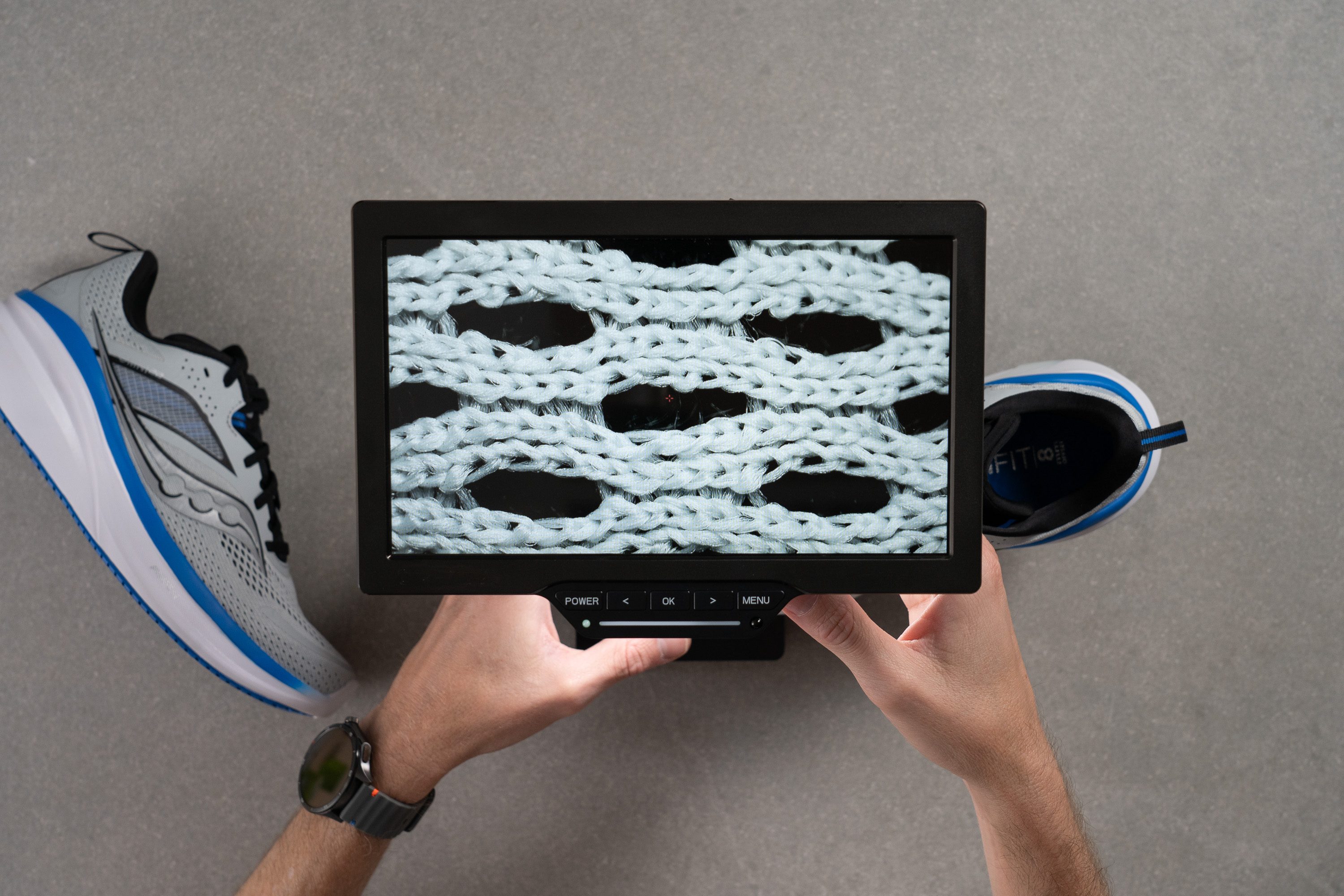
Examining the upper under our digital microscope, we identified a standard engineered mesh, a material we’ve encountered countless times in the lab.
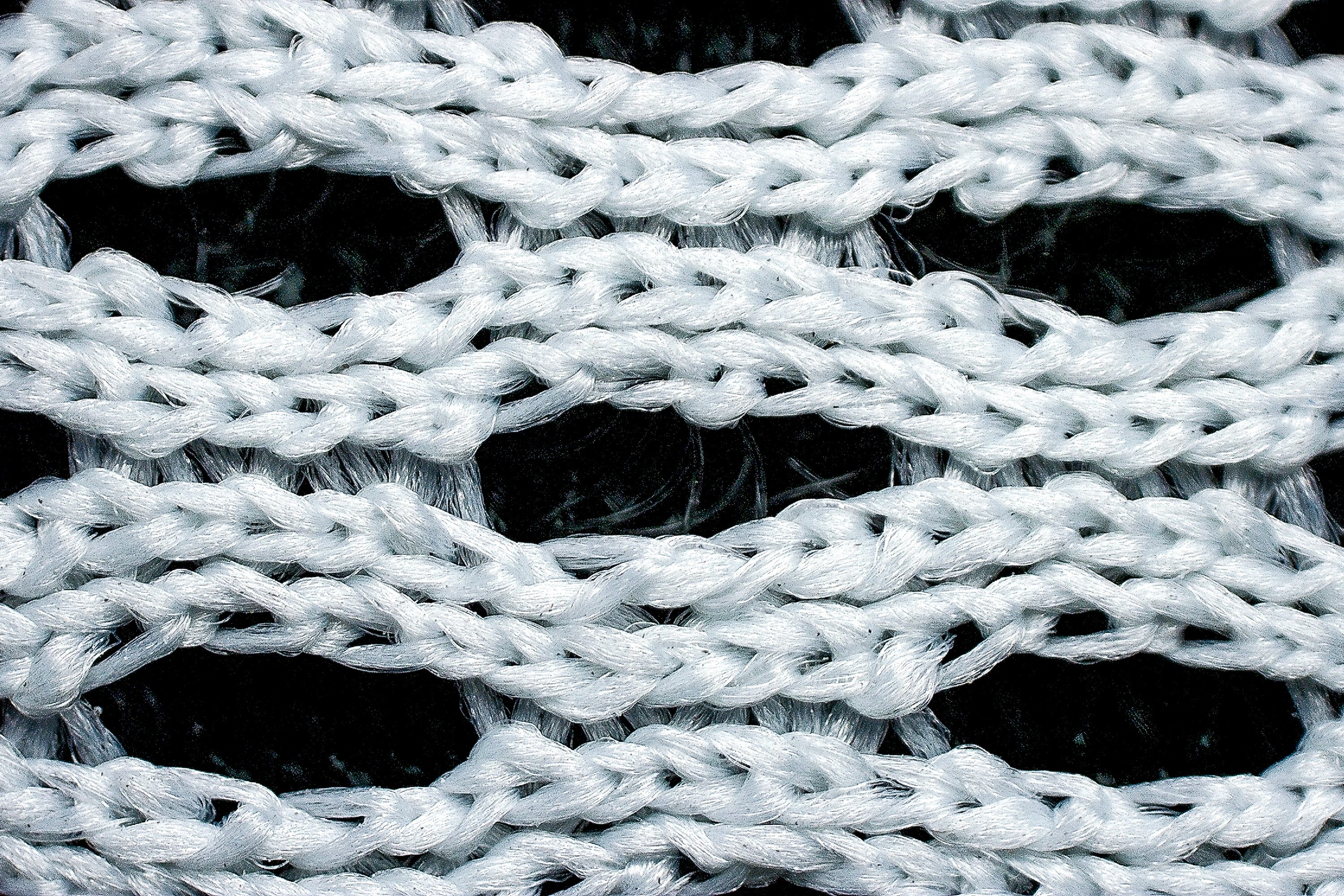
This was a practical choice by Saucony, allowing them to adapt existing designs and manufacturing tools with only minor modifications.
The upper is built with two layers, which came as no surprise, but the inner layer is remarkably thin, letting air pass through with ease. At the same time, padding around the instep and heel provides extra comfort.
| Omni 22 | 4 |
| Average | 3.7 |
Stability
Lateral stability test
If there’s one area where the Omni 22 stands out among daily trainers, it’s stability. The shoe is built around Saucony’s HOLLOW-TECH system and its raised sidewalls, delivering good medial support without unnecessary bulk.
Its notably wide forefoot and firm PWRRUN midsole keep the foot centred and steady. During our runs, we discovered it resists lateral collapse effectively, providing consistent guidance for overpronators.
Torsional rigidity
We must remember this is a mild-stability shoe, not one built only for pronators, and it can also suit neutral runners very well. When we tested torsional rigidity by hand, we discovered a 3/5 score, so it's more in line with a neutral model than a pure stability option in this regard.
| Omni 22 | 3 |
| Average | 3.5 |
Heel counter stiffness
The heel counter showed an even more surprising result, as we measured a 2/5 score. This makes the Omni 22 a highly appealing option for runners with sensitive Achilles tendons who still need a stable ride.
| Omni 22 | 2 |
| Average | 2.9 |
Midsole width - forefoot
The forefoot is so massive that we triple-checked our measurement, as it ranks among the widest shoes we’ve tested in the lab. Our calipers read 126.7 mm, which is remarkable and explains why landings in the midfoot and forefoot felt impressively stable.
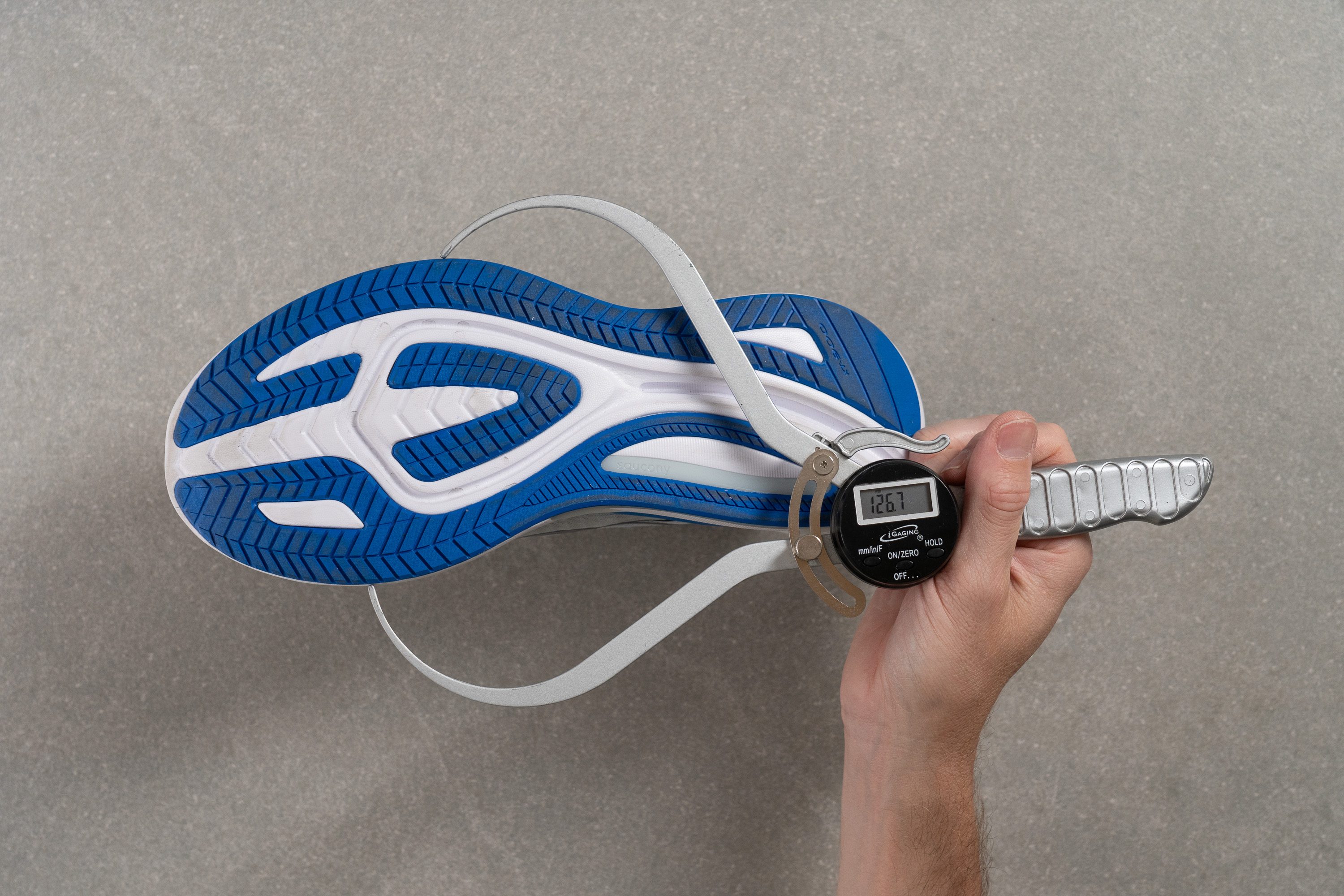
| Omni 22 | 126.7 mm |
| Average | 114.4 mm |
Midsole width - heel
On the flip side, the heel measured only 91.3 mm, a value more consistent with a neutral daily trainer. However, since the shoe already includes added support in this area, Saucony likely decided there was no need to go oversized.
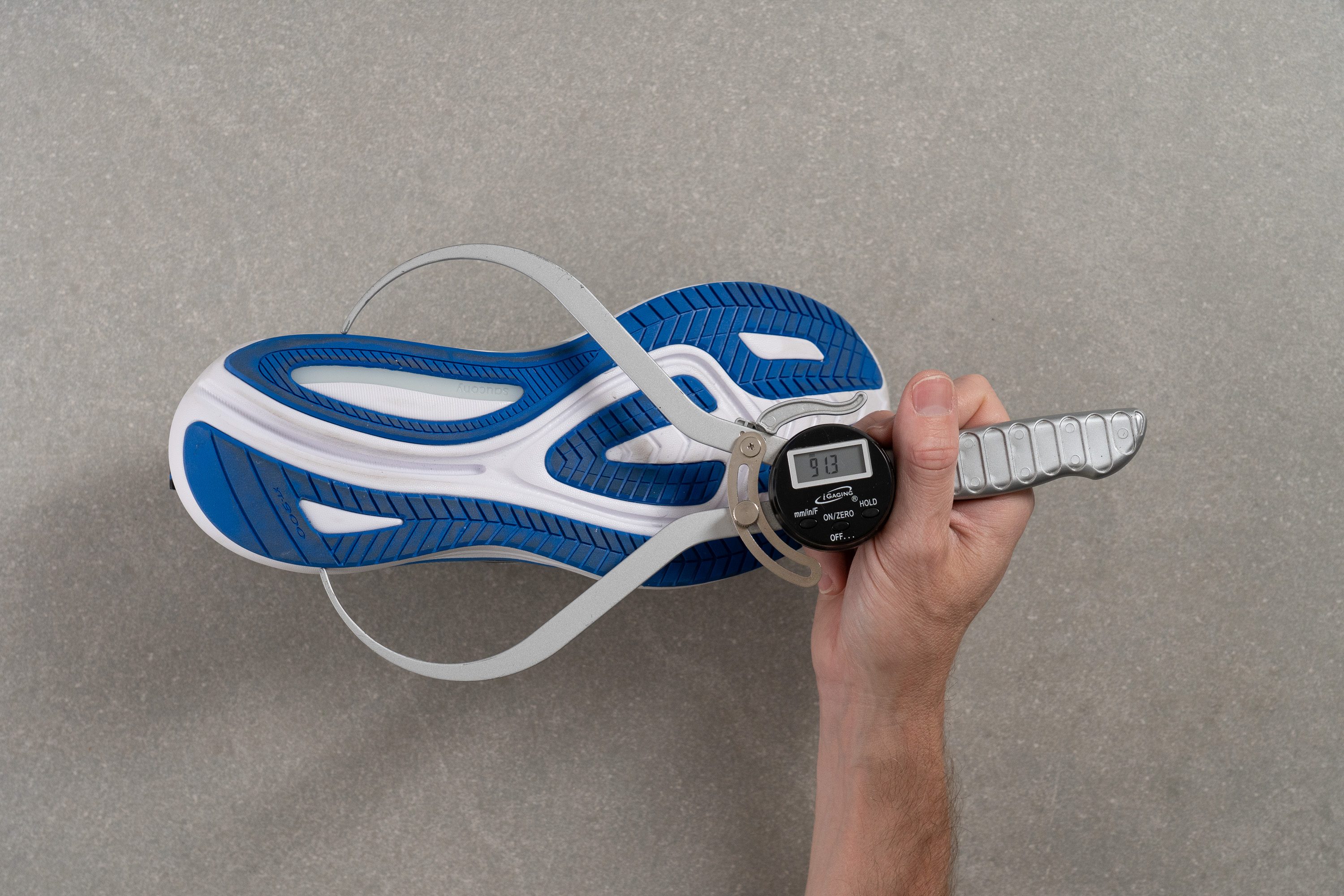
| Omni 22 | 91.3 mm |
| Average | 90.6 mm |
Durability
Toebox durability
We hinted earlier at a trade-off between breathability and durability, but it wasn’t until our Dremel test that it became clear. As expected, the Omni 22 couldn’t withstand the abrasion, earning a very low 1/5 score because of its ventilation holes.
| Omni 22 | 1 |
| Average | 2.6 |
Heel padding durability
Fortunately, the heel counter performed much better, which was a welcome relief. We measured a 4 out of 5 score—a strong result that stands above the current lab average.
| Omni 22 | 4 |
| Average | 3.4 |
Outsole durability
The XT900 rubber also delivered outstanding results in our final Dremel test. After lifting the tool, we measured the indentation with a tyre tread gauge and found only 0.7 mm, which is truly impressive.
| Omni 22 | 0.7 mm |
| Average | 1.1 mm |
Outsole thickness
Saucony kept the outsole thickness conservative, using 3.1 mm of rubber.
From our previous findings, this amount is more than sufficient to support the expected lifespan of a shoe designed for daily training and casual use, even for severe pronators.
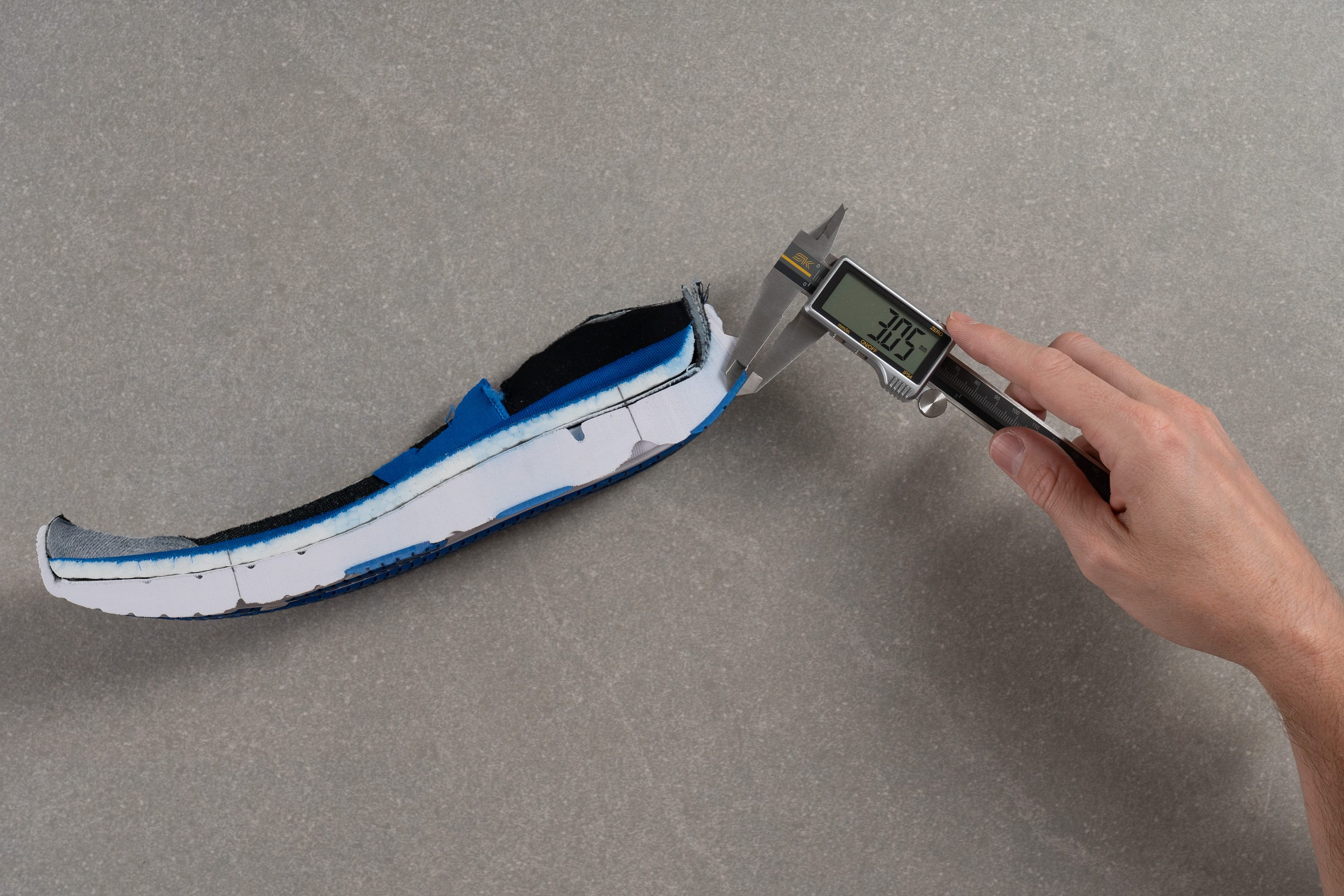
| Omni 22 | 3.1 mm |
| Average | 3.2 mm |
Misc
Insole thickness
The insole is one of the standout features of the Omni 22. Instead of relying on a basic EVA insole, Saucony used its PWRRUN+ foam with 6.6 mm of thickness, way more than most competitors.
Interestingly, the insole’s foam is superior and more bouncy than the midsole itself, a rare approach!
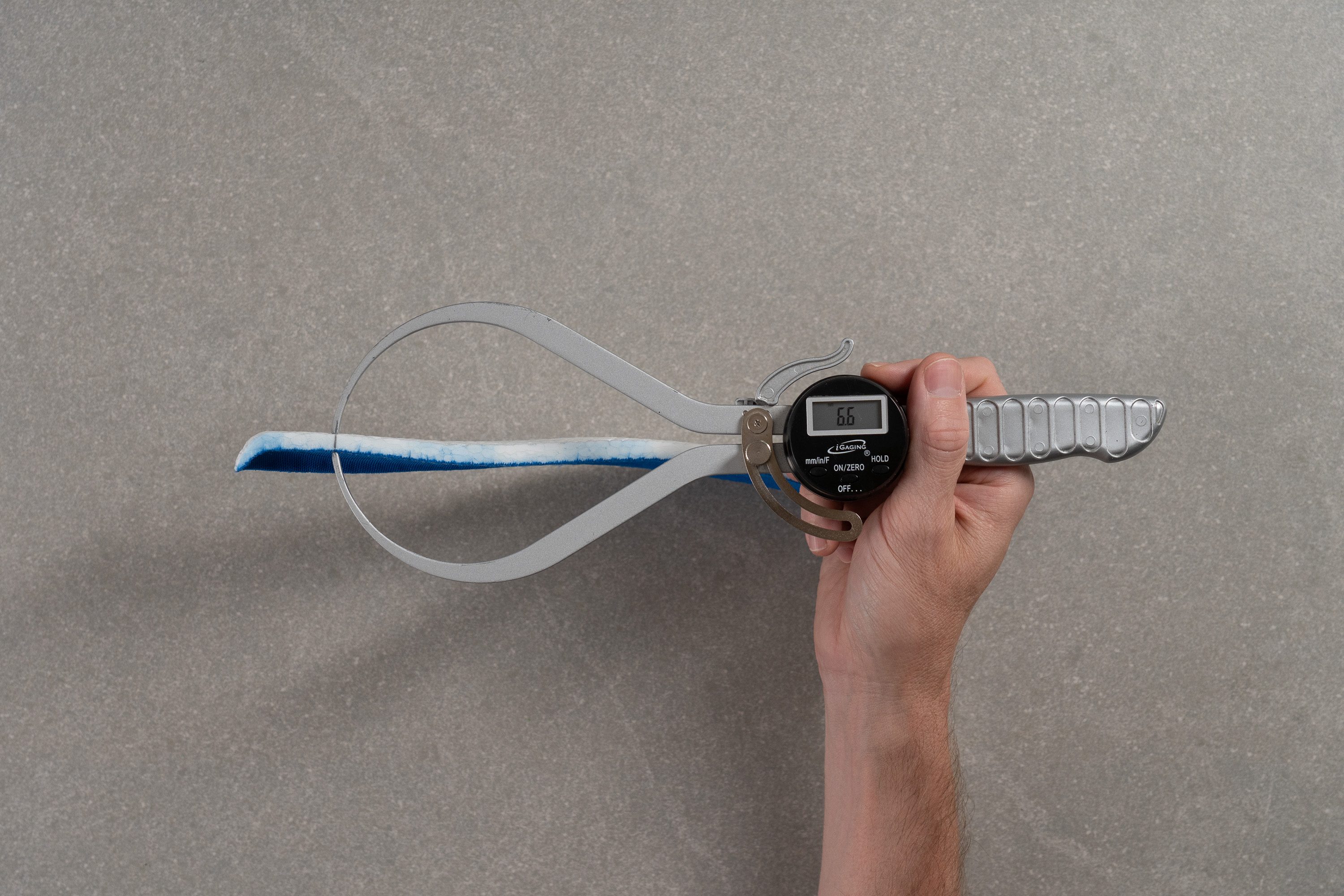
| Omni 22 | 6.6 mm |
| Average | 4.5 mm |
Removable insole
There’s no issue removing the PWRRUN+ insole, which makes it easy to create extra room in the toebox by swapping it for a thinner alternative.
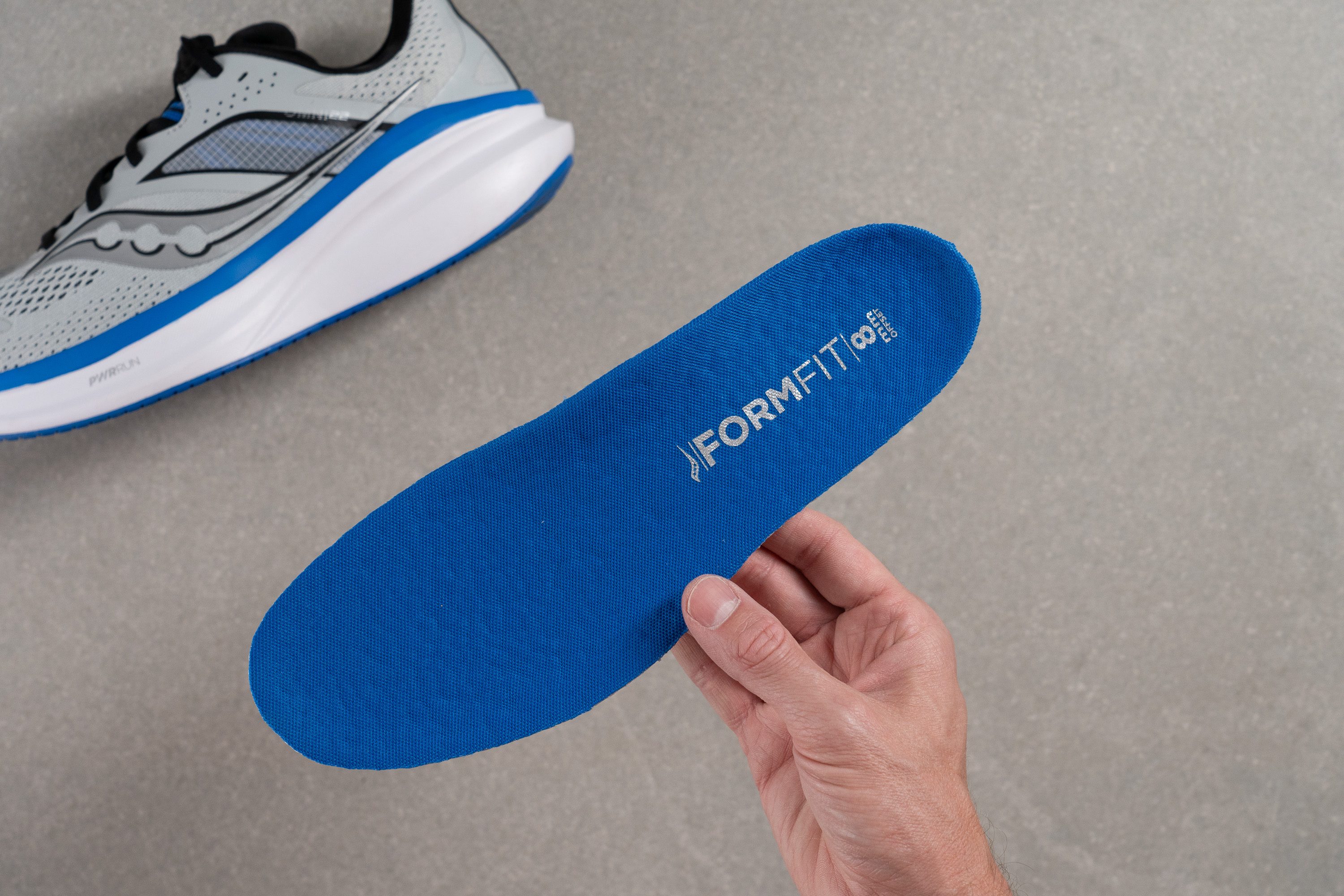
| Omni 22 | Yes |
Midsole softness in cold (%)
Despite being EVA-based, the Omni 22 performed well, becoming only 20% firmer after spending 20 minutes in our freezer alongside our ice creams.
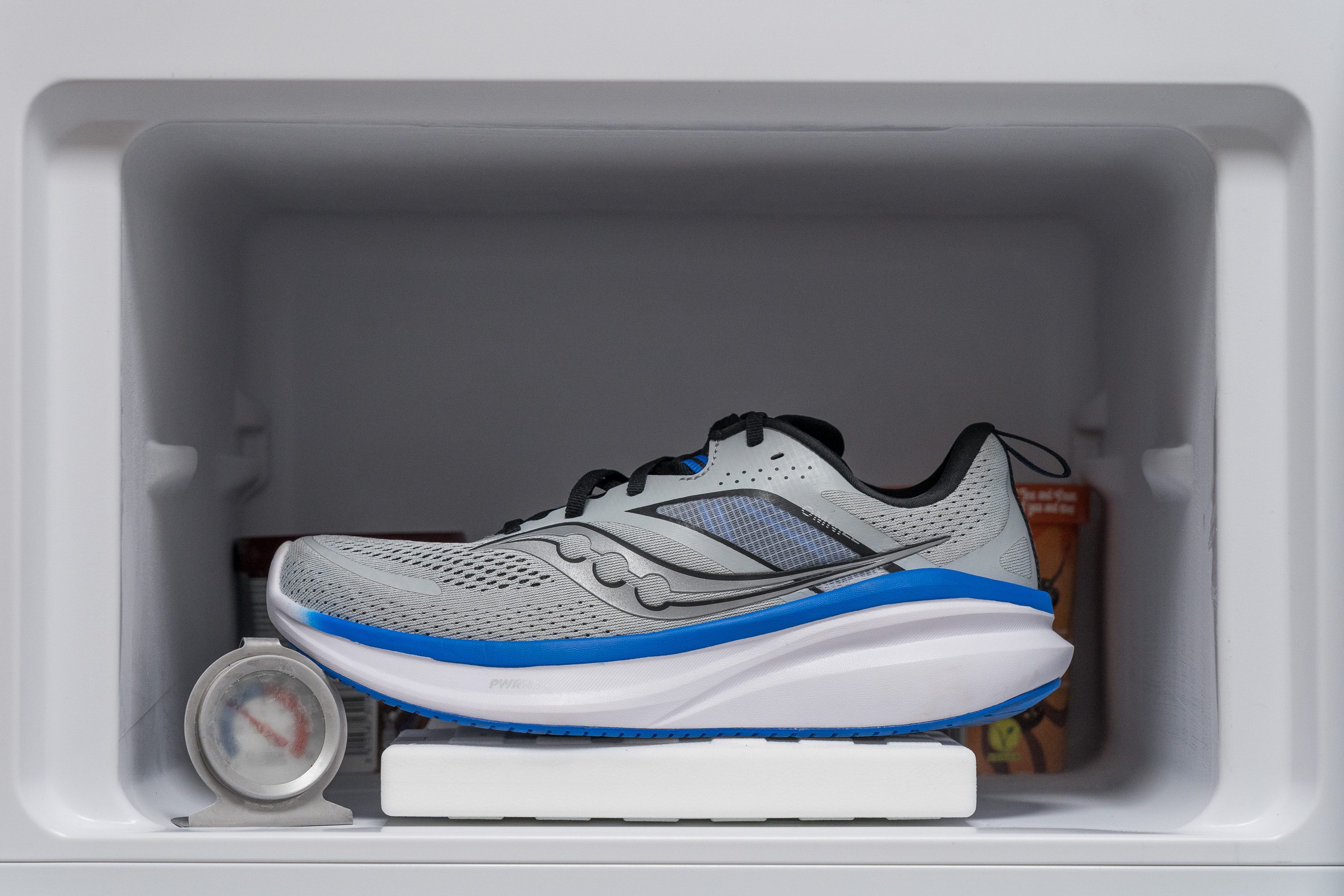
| Omni 22 | 20% |
| Average | 24% |
Reflective elements
There are no reflective elements in the Omni 22. Not a single one!
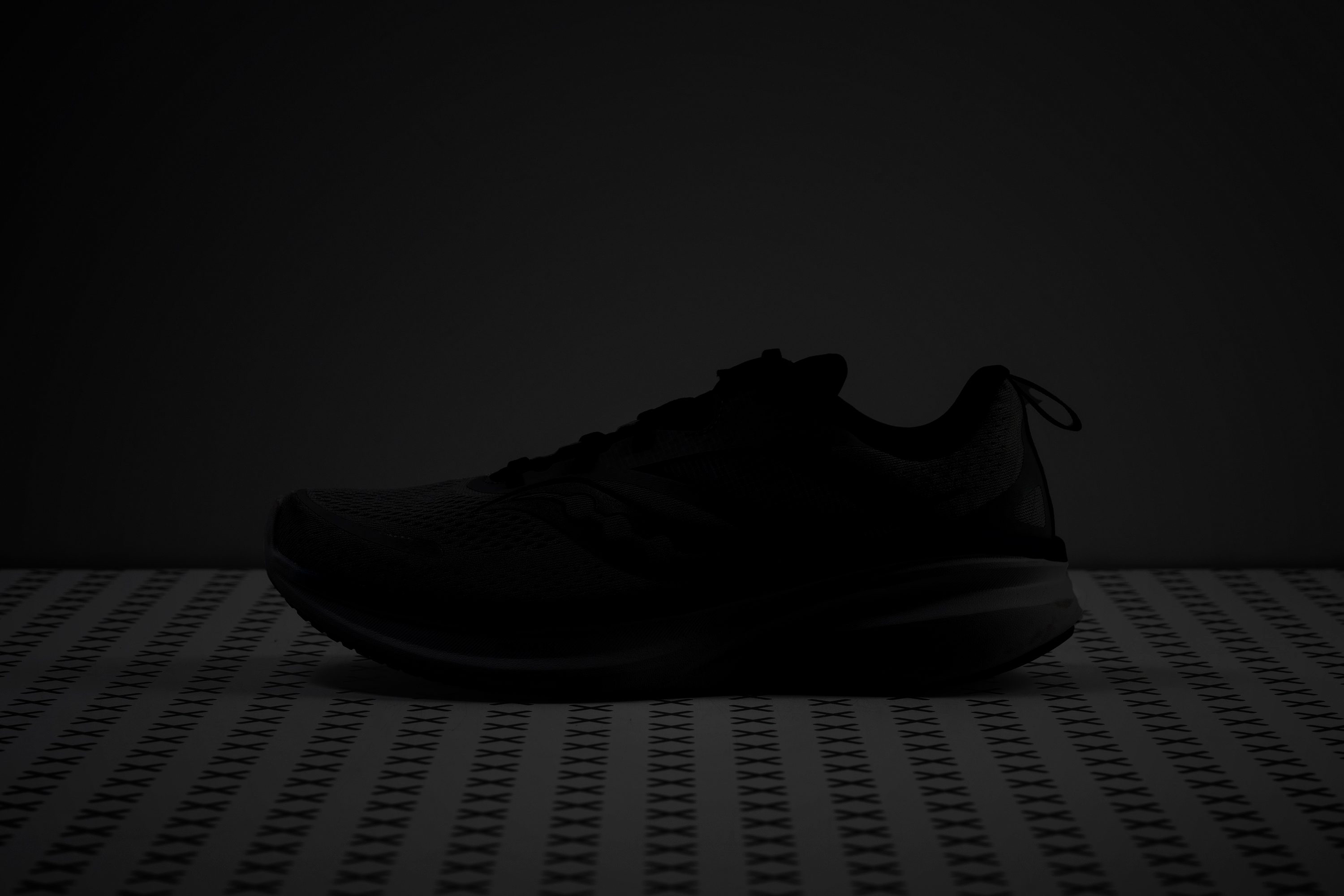
| Omni 22 | No |
Tongue padding
The Omni 22 features a traditional lacing system with flat laces threaded through punched eyelets. This setup distributes pressure evenly across the midfoot, creating a secure fit. We also found that the extra eyelet near the collar allows runners to fine-tune lockdown with a custom knot.
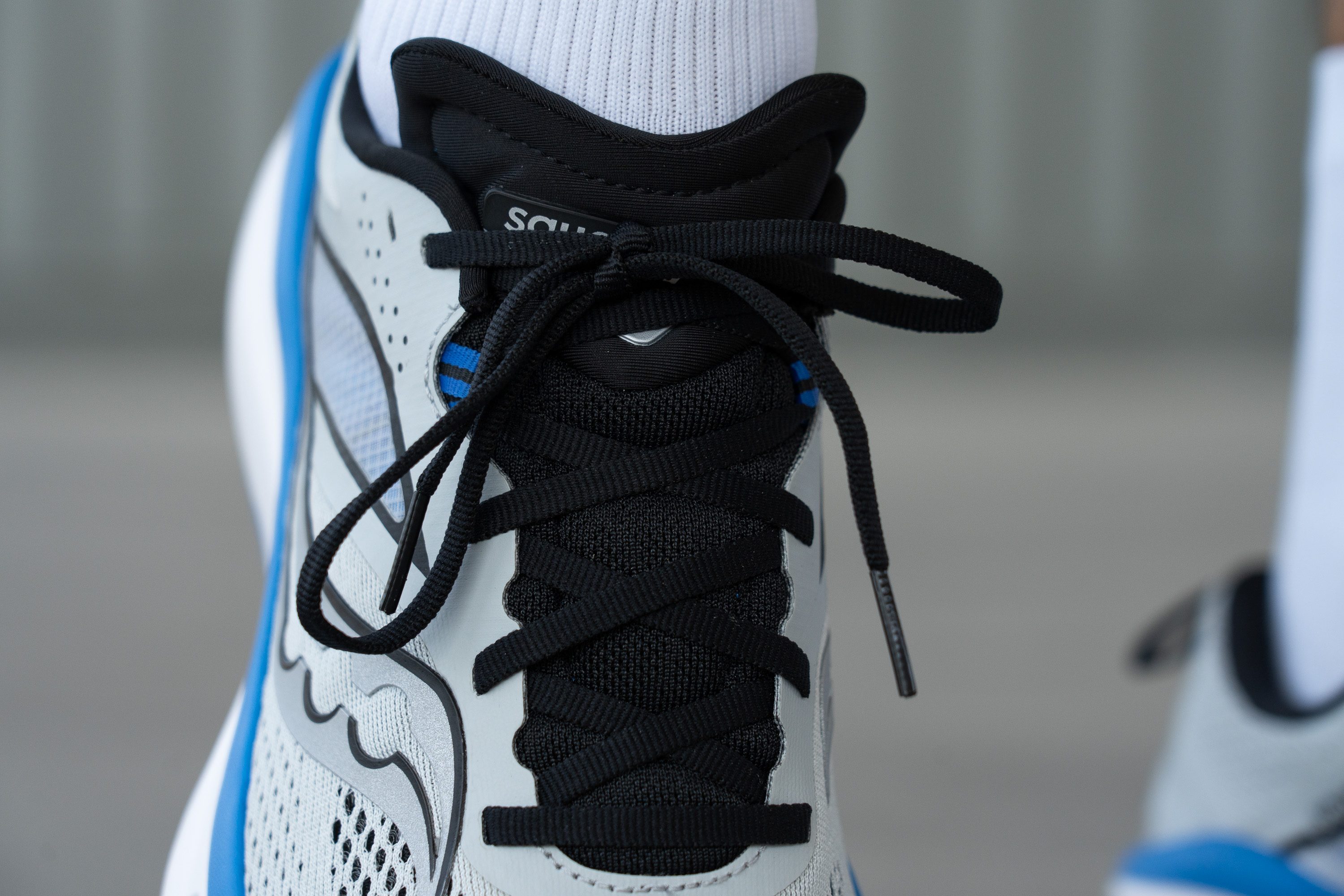
Using our callipers, we measured the tongue padding and were impressed by its comfort. At 9.3 mm thick, it adds some weight, but many runners will appreciate the extra cushioning, especially if they want this shoe to be a jack of all trades.
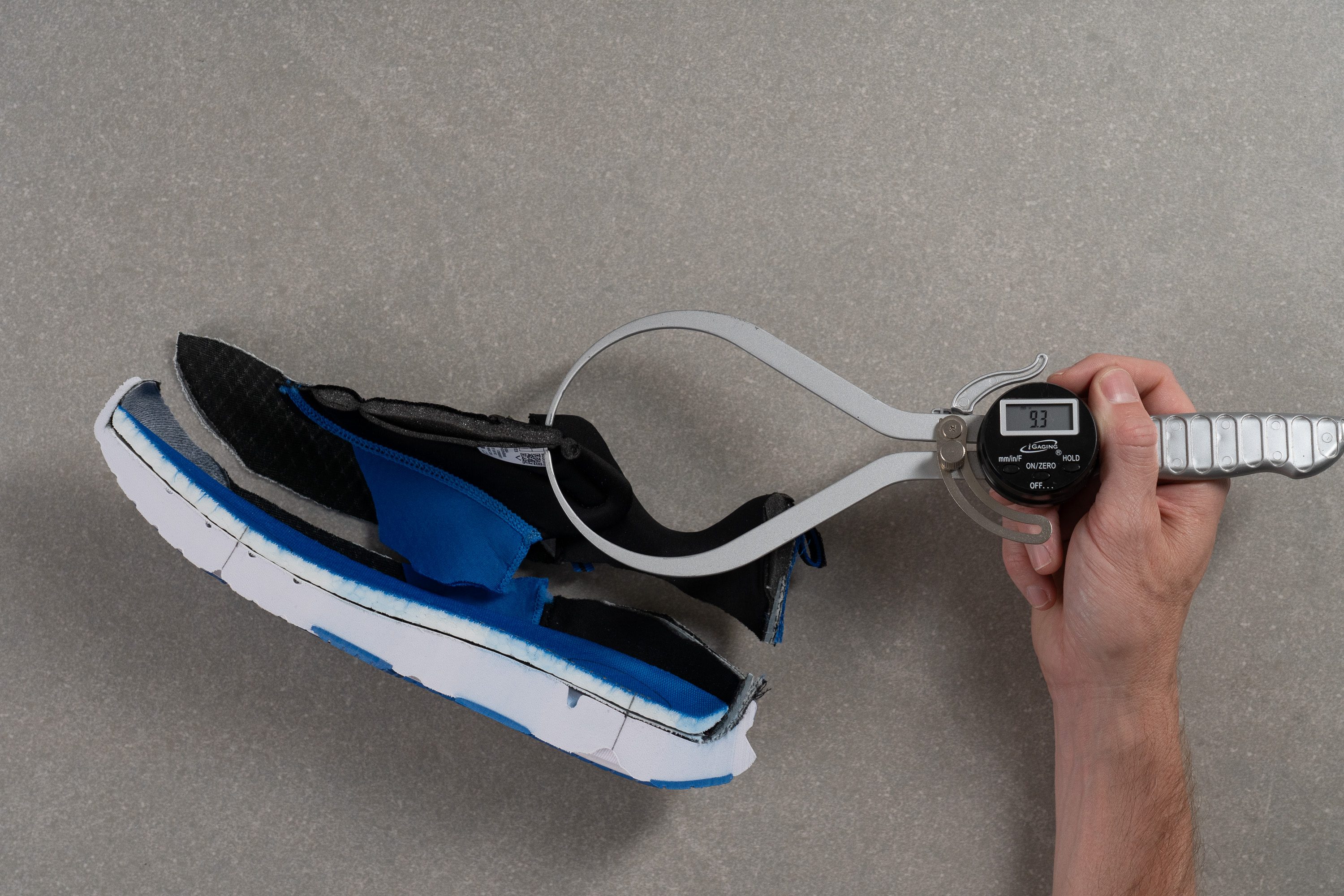
| Omni 22 | 9.3 mm |
| Average | 5.7 mm |
Tongue: gusset type
The tongue is fully stitched to the upper, preventing unwanted movement and enhancing lockdown. It’s a thoughtful detail that not every competitor includes.
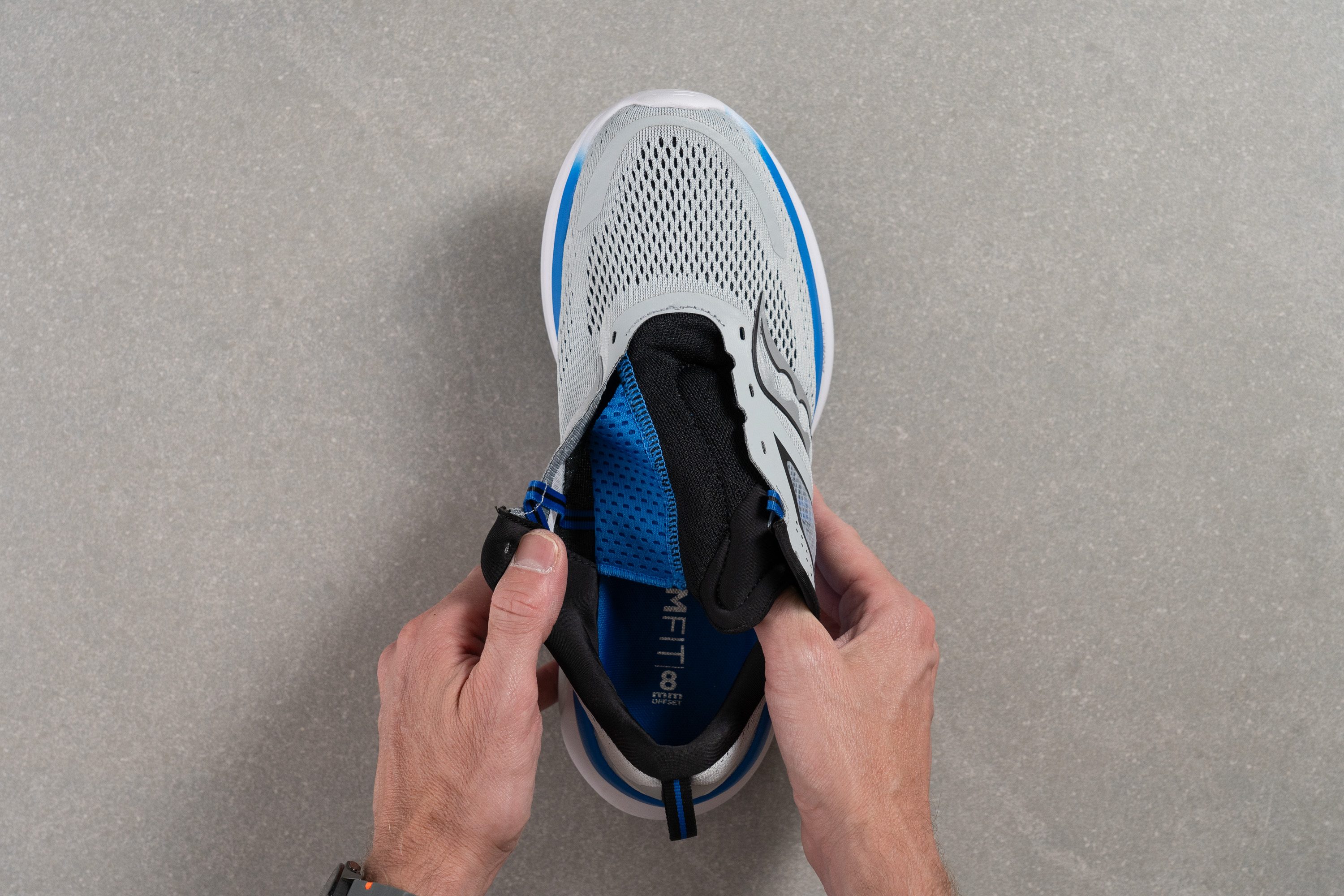
| Omni 22 | Both sides (full) |
Heel tab
The heel tab on this shoe is a fabric loop stitched into the collar, designed to make putting the shoe on easier by providing a secure grip.
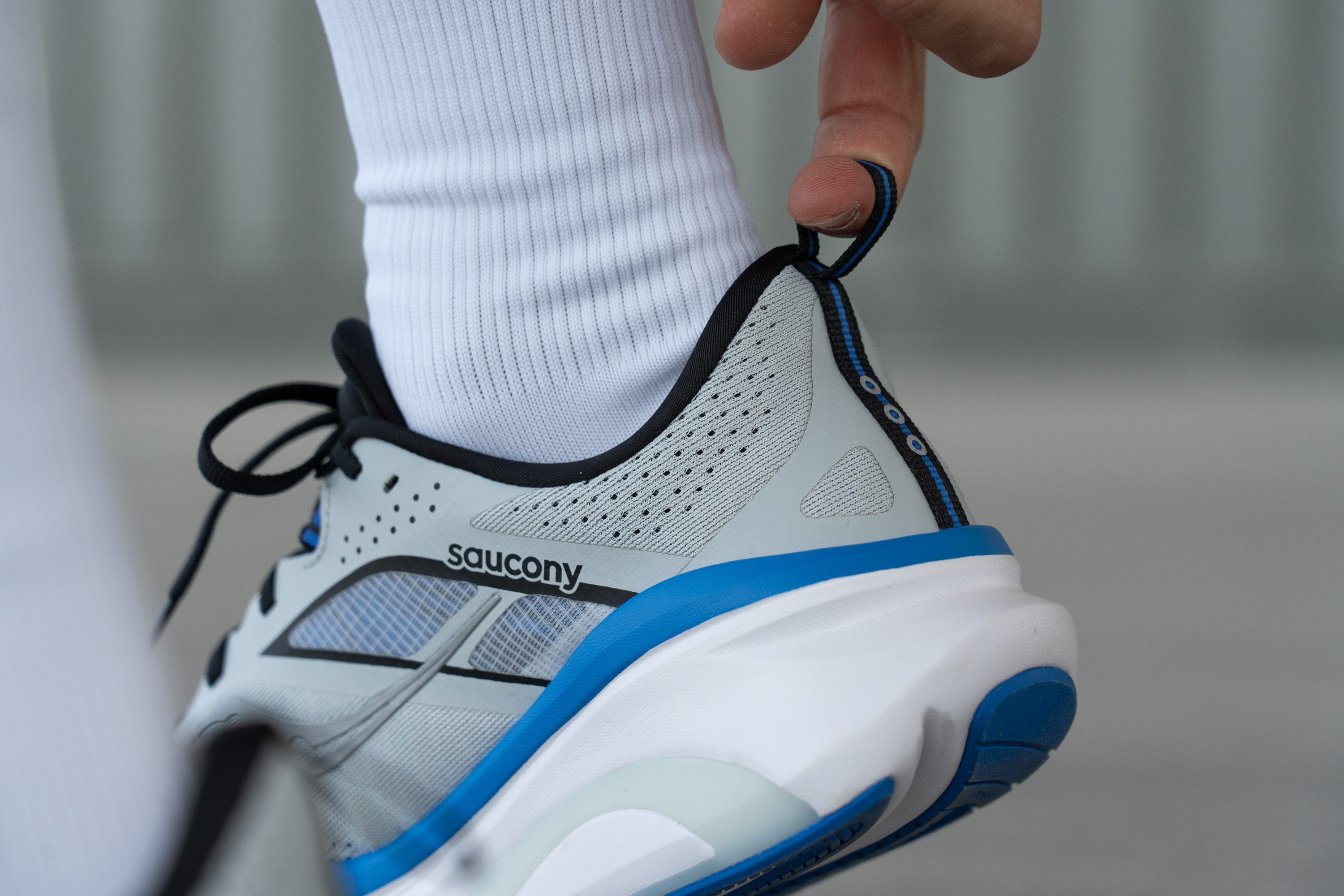
| Omni 22 | Finger loop |
Price
We believe the Saucony Omni 22 is reasonably priced for its features. It covers nearly all the essentials of a comfortable, dependable daily trainer at the same price point as the Nike Pegasus 41, while also delivering excellent stability. Sure, it’s not a bargain, but it’s certainly not overpriced.
| Omni 22 | $140 |

